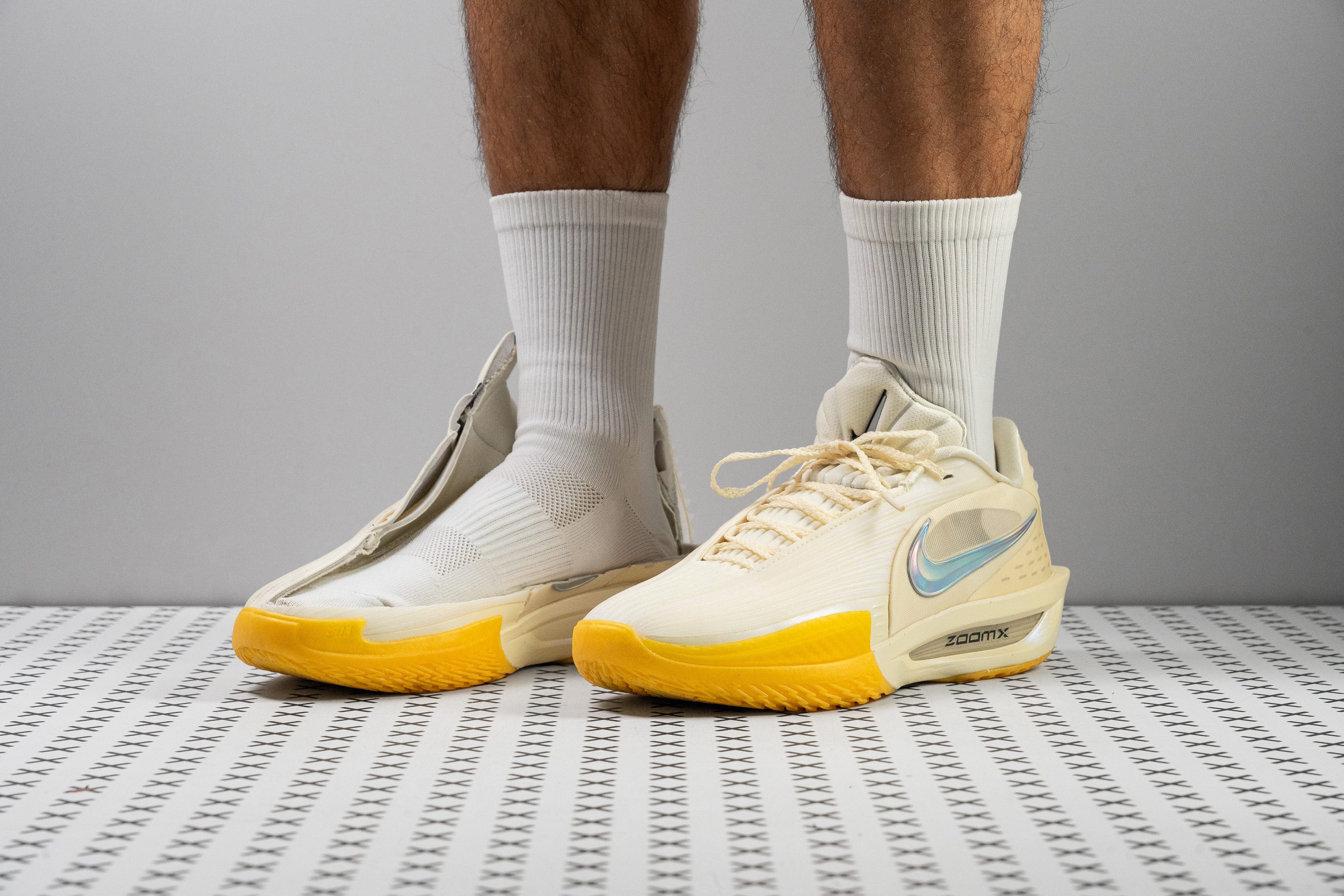Our verdict
- Top pick in best basketball shoes
- Top pick in best basketball shoes for ankle support
Pros
- Record-breaking energy return with ZoomX
- Significant improvement in lateral support
- Soft and comfortable step-in feel
- Excellent heel and midfoot containment
- Feels highly agile and nimble
- Fantastic outsole grip
- Lighter than average
Cons
- Below-average shock absorption
- Disappointing durability for the price
- Lacks breathability
Audience verdict
Comparison
The most similar basketball shoes compared
+ + Add a shoe | |||||
|---|---|---|---|---|---|
| Audience score | 83 Good! | 89 Great! | 85 Good! | 83 Good! | |
| Price | $210 | $190 | $210 | $205 | |
| Signature | - | - | LeBron James | Michael Jordan | |
| Shock absorption | Low | Moderate | High | Low | |
| Energy return | High | High | High | Moderate | |
| Traction | High | Moderate | Moderate | High | |
| Top | - | Low | Low | Low | |
| Ankle support | ✓ | ✓ | ✓ | ✓ | |
| Weight lab | 12.6 oz / 357g | 11.8 oz / 335g | 15.5 oz / 439g | 15.5 oz / 439g | |
| Lightweight | ✓ | ✓ | ✗ | ✗ | |
| Breathability | Warm | Warm | Warm | Warm | |
| Outsole durability | Bad | Good | Good | Decent | |
| Drop lab | 5.8 mm | 5.5 mm | 7.7 mm | 4.9 mm | |
| Heel stack lab | 27.2 mm | 27.0 mm | 31.1 mm | 25.4 mm | |
| Forefoot | 21.4 mm | 21.5 mm | 23.4 mm | 20.5 mm | |
| Size | True to size | True to size | True to size | Half size small | |
| Midsole softness | Soft | Soft | Soft | Soft | |
| Stiffness | Stiff | Stiff | Moderate | Moderate | |
| Torsional rigidity | Stiff | Stiff | Stiff | Stiff | |
| Heel counter stiffness | Moderate | Flexible | Stiff | Moderate | |
| Width / fit | Narrow | Medium | Wide | Medium | |
| Toebox width | Medium | Medium | Medium | Wide | |
| Midsole width - forefoot | Average | Average | Average | Average | |
| Midsole width - heel | Narrow | Narrow | Average | Narrow | |
| Heel padding durability | Decent | Bad | Good | Good | |
| Toebox durability | Decent | Decent | Good | Decent | |
| Insole thickness | Average | Average | Very thick | Average | |
| Outsole hardness | - | Hard | - | - | |
| Outsole thickness | Average | Average | Average | Average | |
| Heel tab | None | None | None | None | |
| Ranking | #39 Bottom 27% | #13 Top 25% | #34 Bottom 37% | #46 Bottom 14% | |
| Popularity | #17 Top 32% | #3 Top 6% | #11 Top 21% | #2 Top 4% |
Who should buy
You are quite likely to enjoy the Nike G.T. Cut 3 Turbo if you are in search of the following:
- a highly propulsive, agile, and nimble shoe for quick and light players (guards, wings, etc.)
- a premium-level traction for indoor courts only
- a more supportive version of the regular G.T. Cut 3
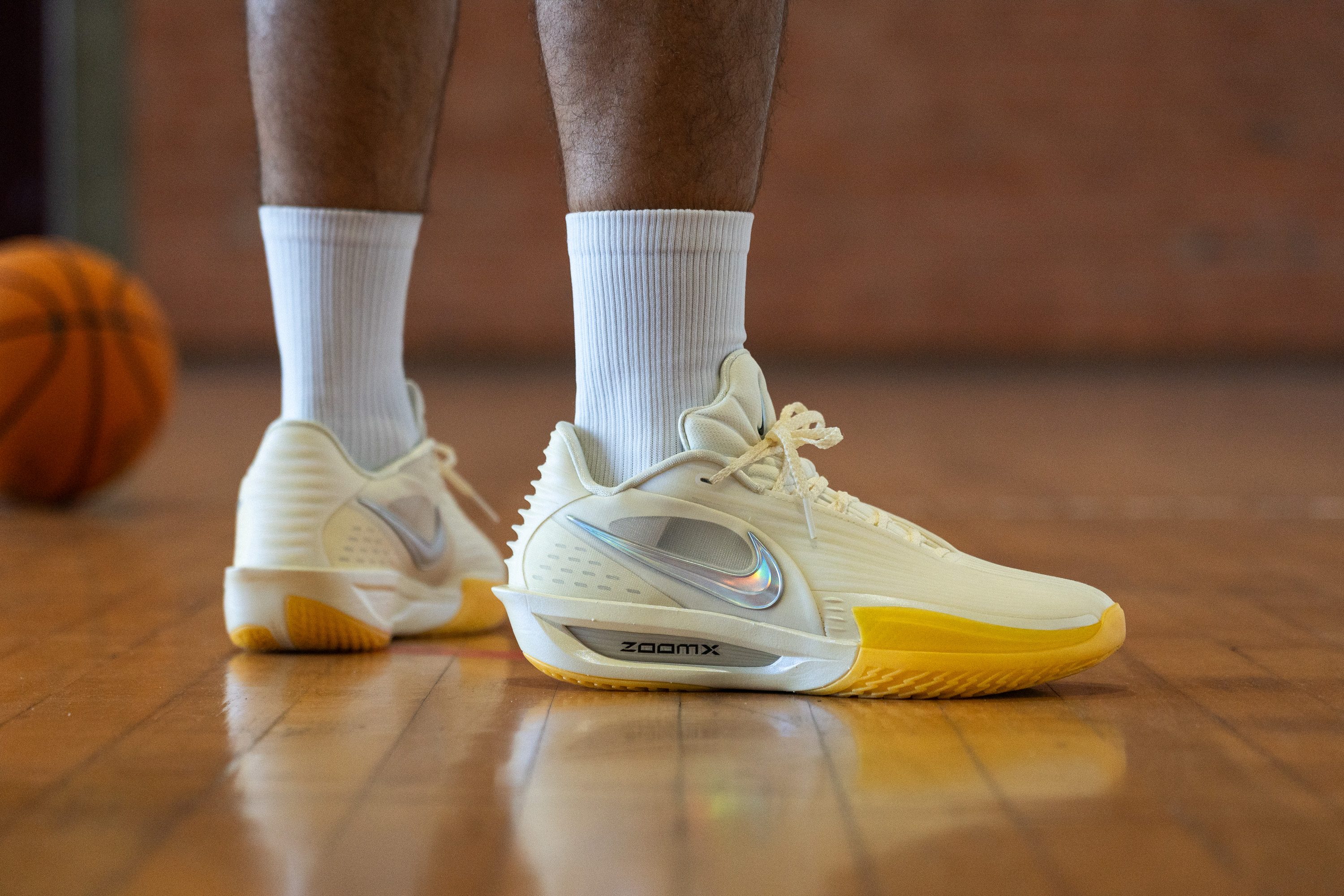
Who should NOT buy
Even though it packs Nike's top-tier ZoomX cushioning foam, the G.T. Cut 3 Turbo showed surprisingly low impact protection! If you are a larger player or have any joint concerns (such as past injuries, discomfort, or pain), we highly recommend opting for hoop shoes with higher shock absorption, like the Nike G.T. Hustle 3, for example.
And if you want to explore agile shoes with high energy return at a more affordable price point, consider the Nike Sabrina 3 and the Jordan Zion 4.
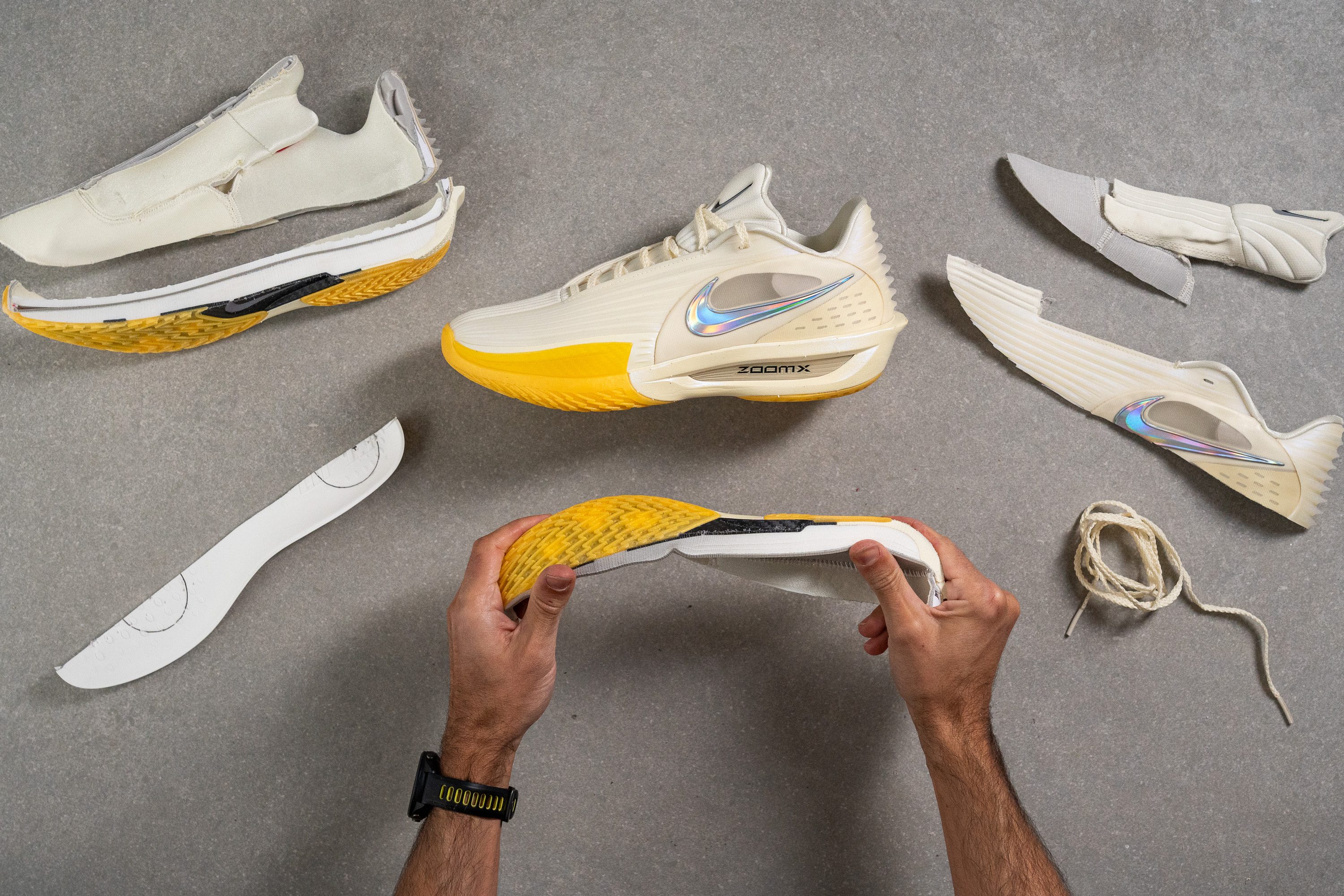
Cushioning
Shock absorption
Our shock absorption measurements made it clear as day that impact protection is not prioritised in the G.T. Cut 3 Turbo as much as it is in the G.T. Hustle 3. We recorded fairly low, below-average readings of 100 SA in the heel of the shoe and 71 SA in its forefoot.
This confirms the fact that the Turbo is designed for lighter and more agile wing players whose feet and joints don't require abundant cushioning to get them through a long practice or all four quarters of the game.
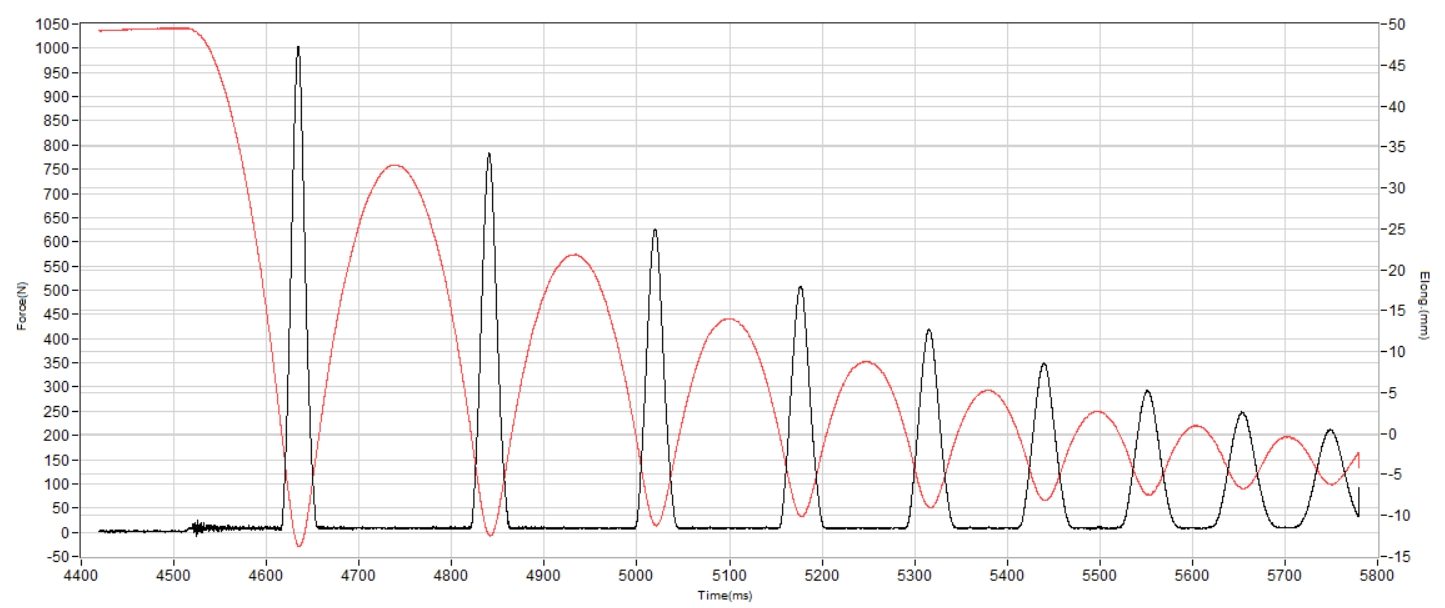
| G.T. Cut 3 Turbo | 100 SA |
| Average | 103 SA |
Energy return
However, you can't beat the G.T. Cut 3 Turbo when it comes to explosiveness.
The shoe's platform showed record-setting energy return measurements of 71.5% in the heel and 83.2% in the forefoot, placing it at the top of our shoe lab pedestal in the basketball category.
The addition of a carbon-infused TPU plate and a ZoomX insole surely made a difference over the standard G.T. Cut 3, with notably lower measurements of 61.9% in the heel and 70.9% in the forefoot.
The Turbo's springiness helped us launch off the ground effortlessly on first steps, made our jump shots and high-speed cuts feel charged, and also helped maintain high speed when driving to the basket. In other words, proved itself as the Turbo upgrade!
| G.T. Cut 3 Turbo | 83.2% |
| Average | 62.1% |
Heel stack
The secret formula of Nike's ZoomX foam is that you don't need a ton of it to reap the benefits.
Just as the standard version, the G.T. Cut 3 Turbo showed a below-average heel stack of 27.2 mm, keeping it a bit closer to the ground than the average basketball shoe.
However, the shoe's court feel is still quite minimal as the soft and ultra springy nature of ZoomX mutes it out.
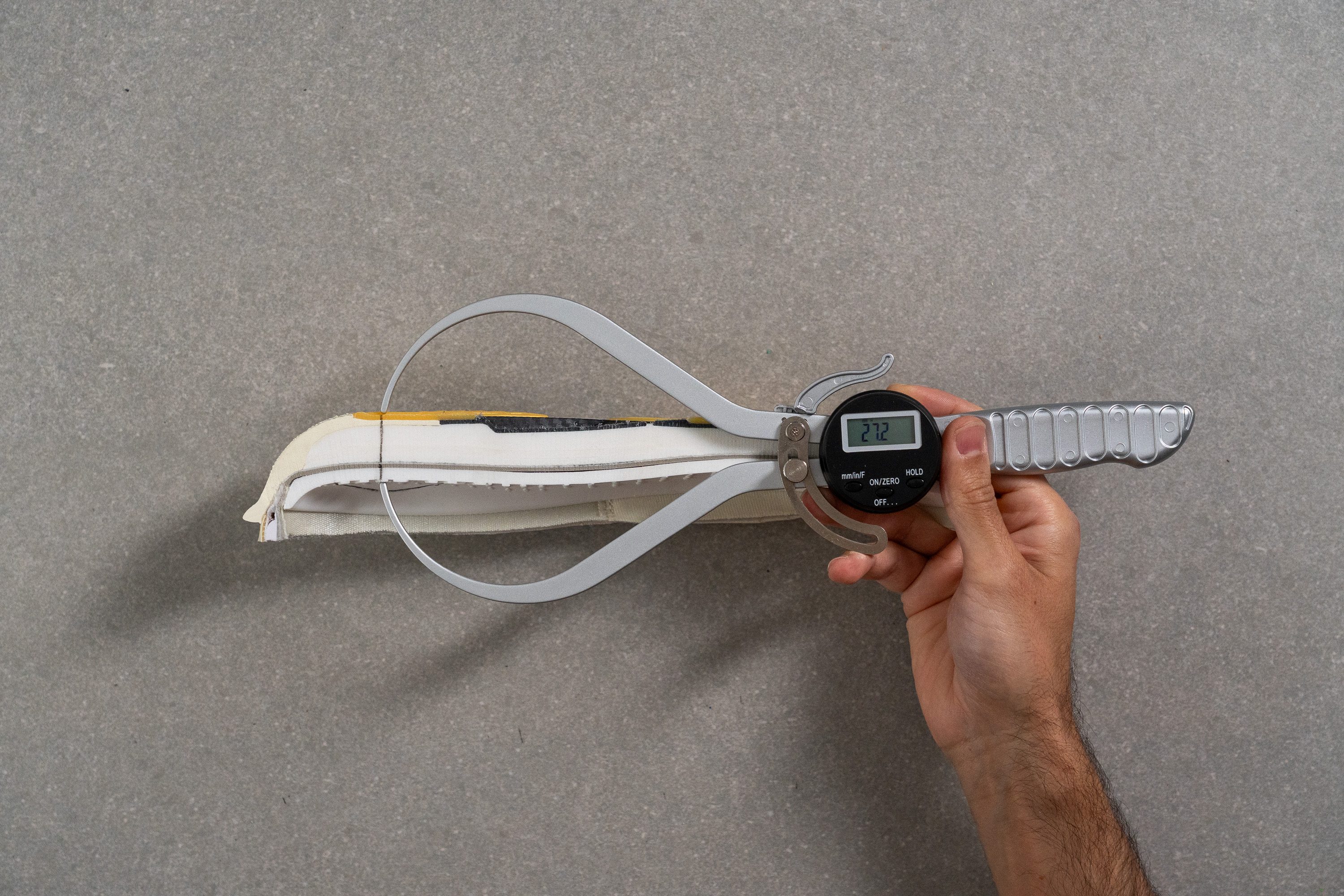
| G.T. Cut 3 Turbo | 27.2 mm |
| Average | 28.8 mm |
Forefoot stack
The shoe's forefoot stack proved to be on par with the average of basketball shoes at 21.4 mm.
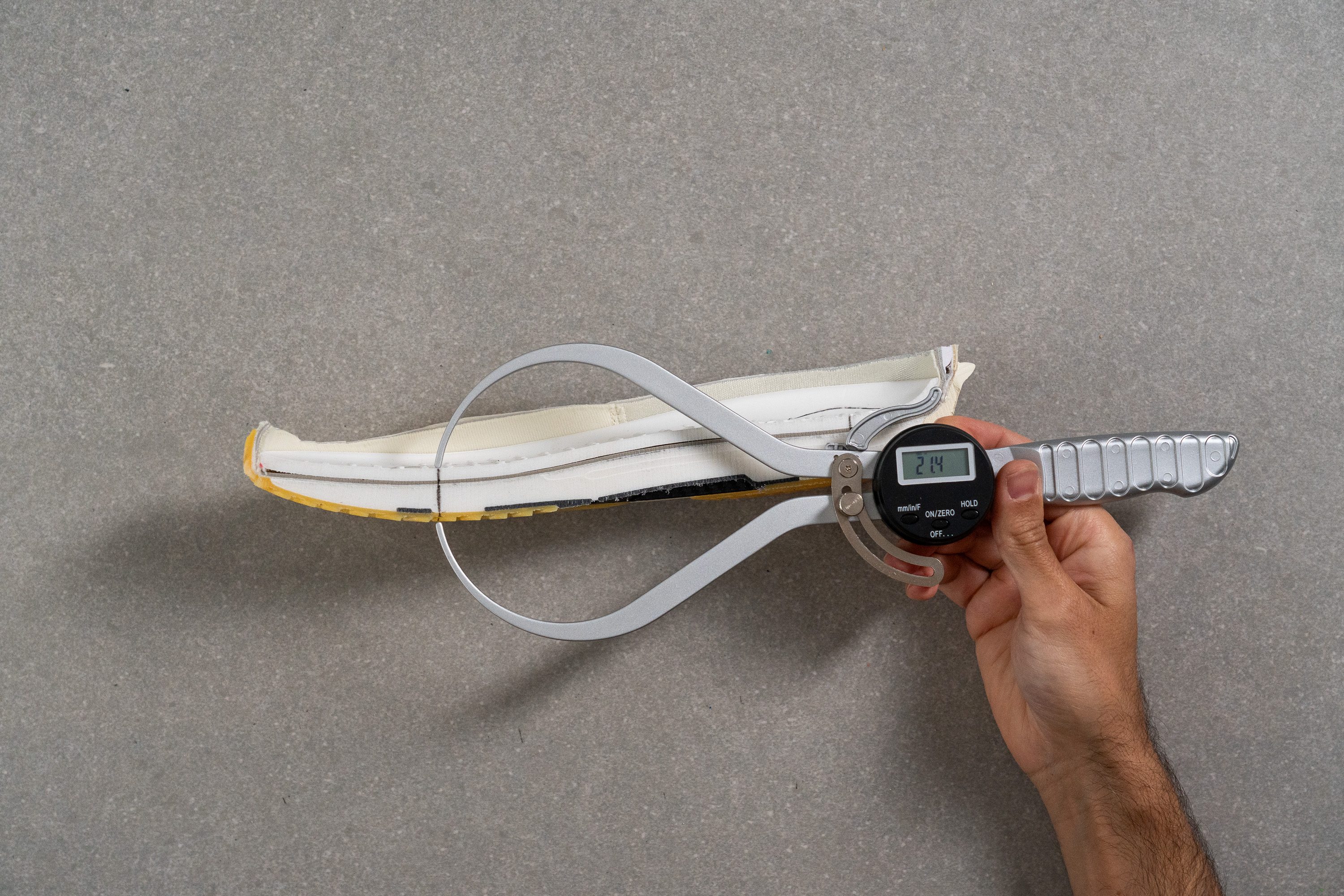
| G.T. Cut 3 Turbo | 21.4 mm |
| Average | 21.4 mm |
Drop
The heel-to-toe drop of this Nike shoe measures 5.8 mm, which is slightly lower than the average.
With no drastic heel elevation, it offers a more balanced foot placement with a minimal forward lean. This makes forceful directional movements like cuts and stepbacks feel more controlled.
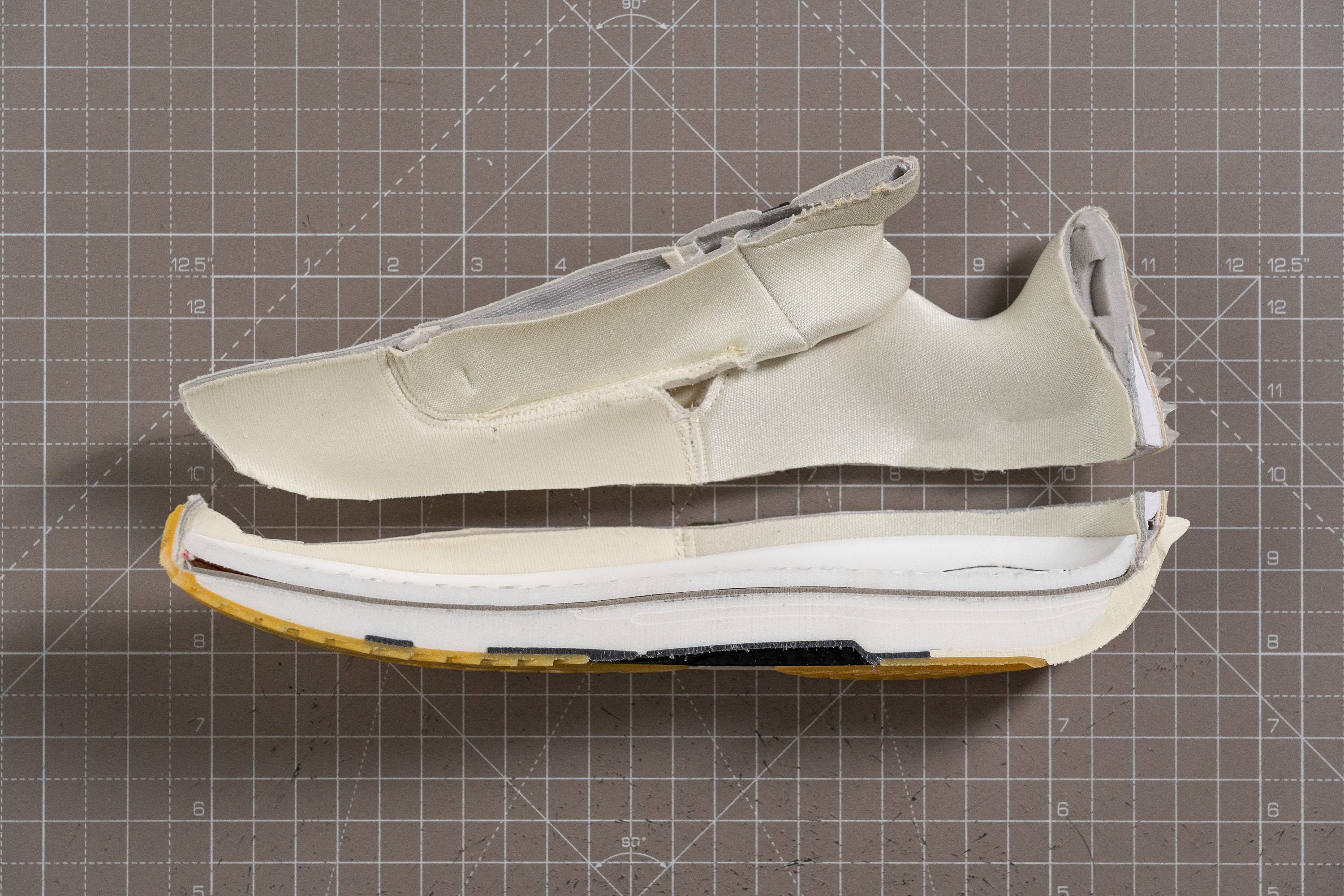
| G.T. Cut 3 Turbo | 5.8 mm |
| Average | 7.4 mm |
Midsole softness
UpdatedNike ZoomX is one of the plushest cushioning foams on the market, but in basketball shoes like the G.T. Cut 3 Turbo, it is caged inside a firmer foam (like Phylon in this case) to keep the cushioning benefits without losing stability.
Having cut the shoe in half, we were able to press our durometer against the ZoomX foam itself and recorded a low reading of 35.9 AC indeed. It is significantly softer than the average cushioning foam in a hoop shoe.
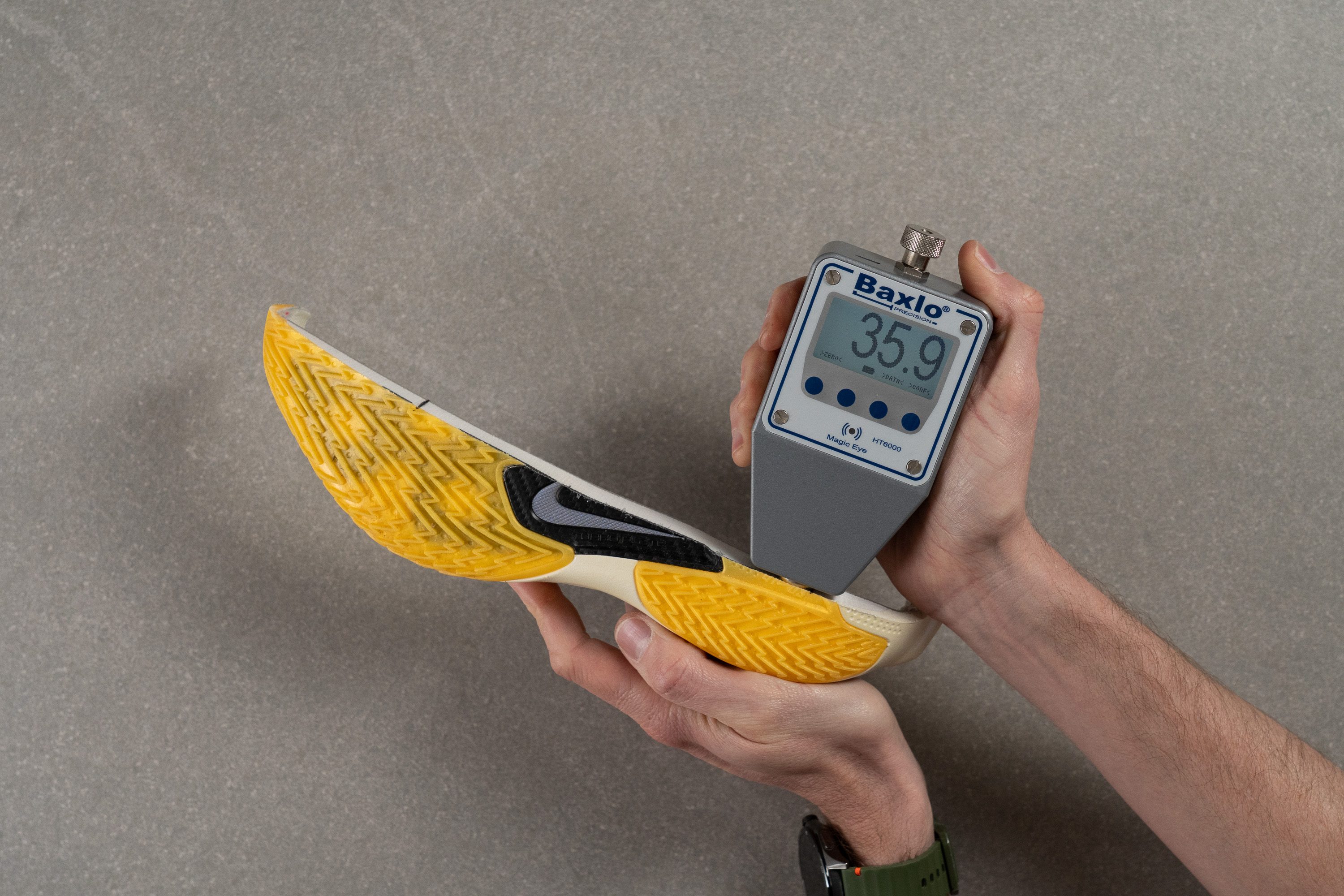
| G.T. Cut 3 Turbo | 35.9 AC |
| Average | 42.6 AC |
Size and fit
Size
Nike G.T. Cut 3 Turbo fits true to size (32 votes).
Width / Fit
With major changes to the shoe's upper design, we did expect the G.T. Cut 3 Turbo's fit to differ from the original version.
Having created one-to-one gel molds of both shoes' interiors, we used a digital caliper to measure their dimensions in the widest area of the shoe (the ball of the foot).
At only 90.7 mm, the Turbo turned out to have a narrower fit than the previous version (94.3 mm), falling into the narrow range of hoop shoes.
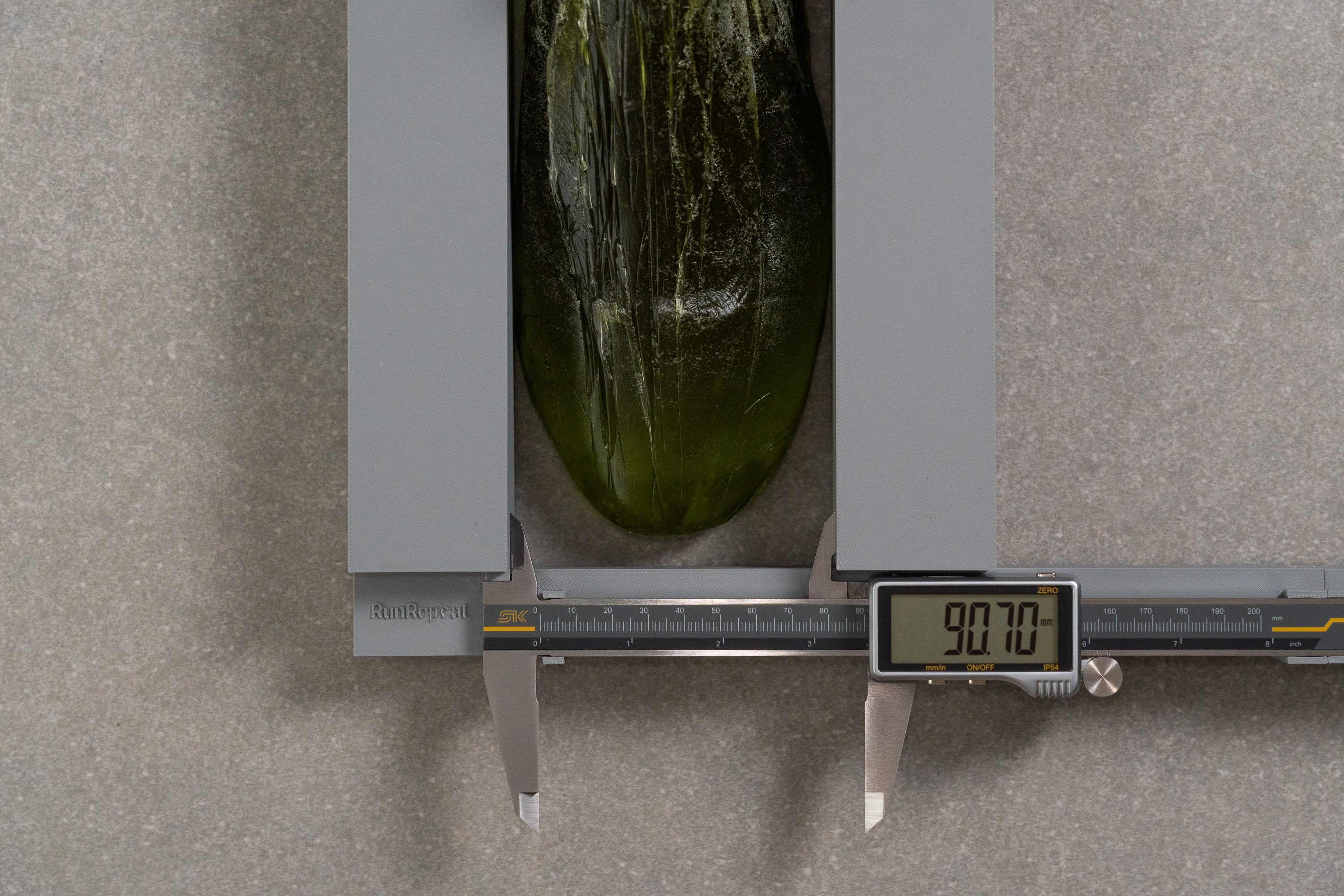
| G.T. Cut 3 Turbo | 90.7 mm |
| Average | 92.8 mm |
Toebox width
But on the bright side, its toebox shape remained unchanged, resulting in the same width of 69.4 mm in the big toe area.
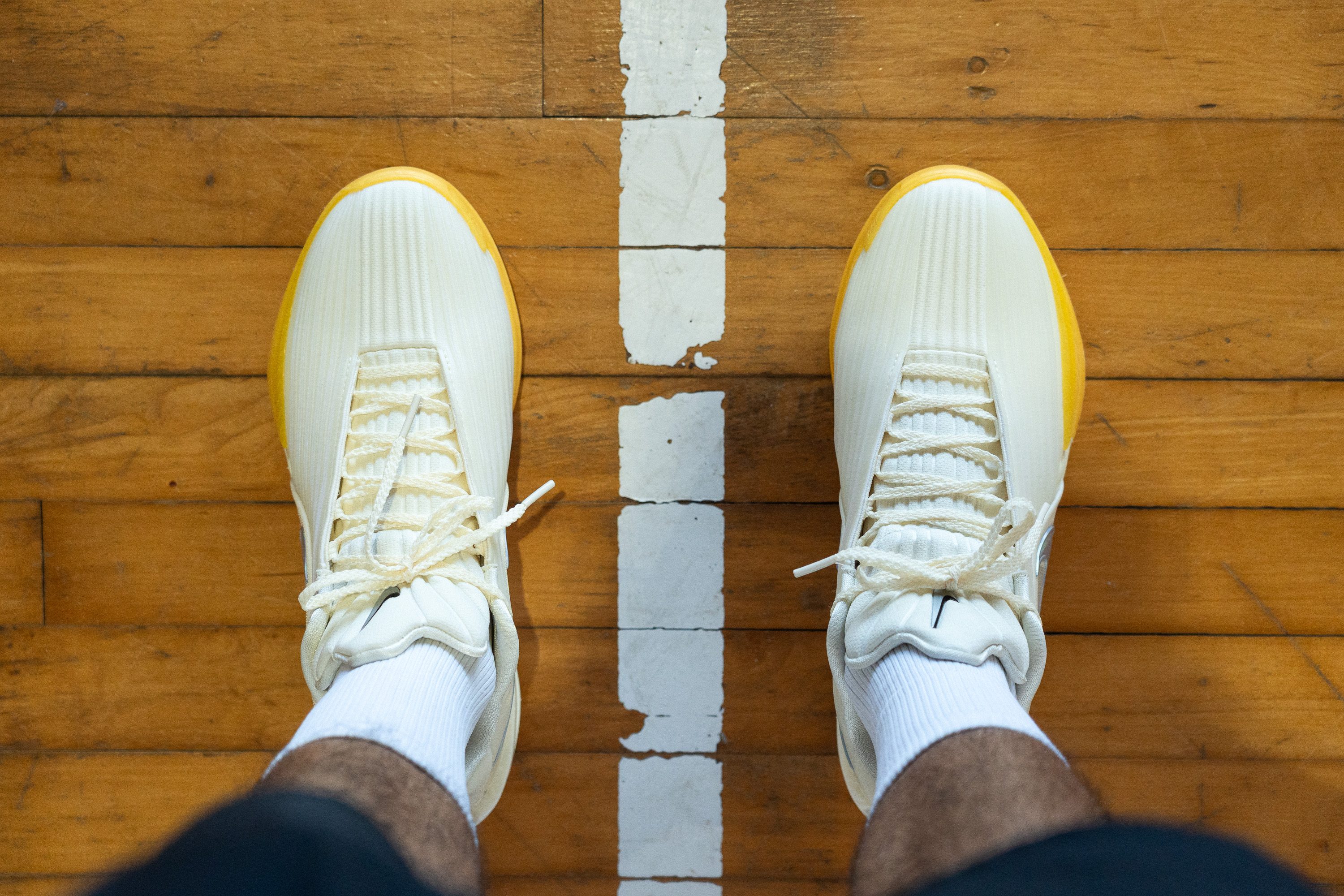
But overall, we can't complain about tightness for our medium-width feet. The G.T. Cut 3 Turbo offers a nice and snug experience that helps it feel in one with the foot during the most dynamic footwork.
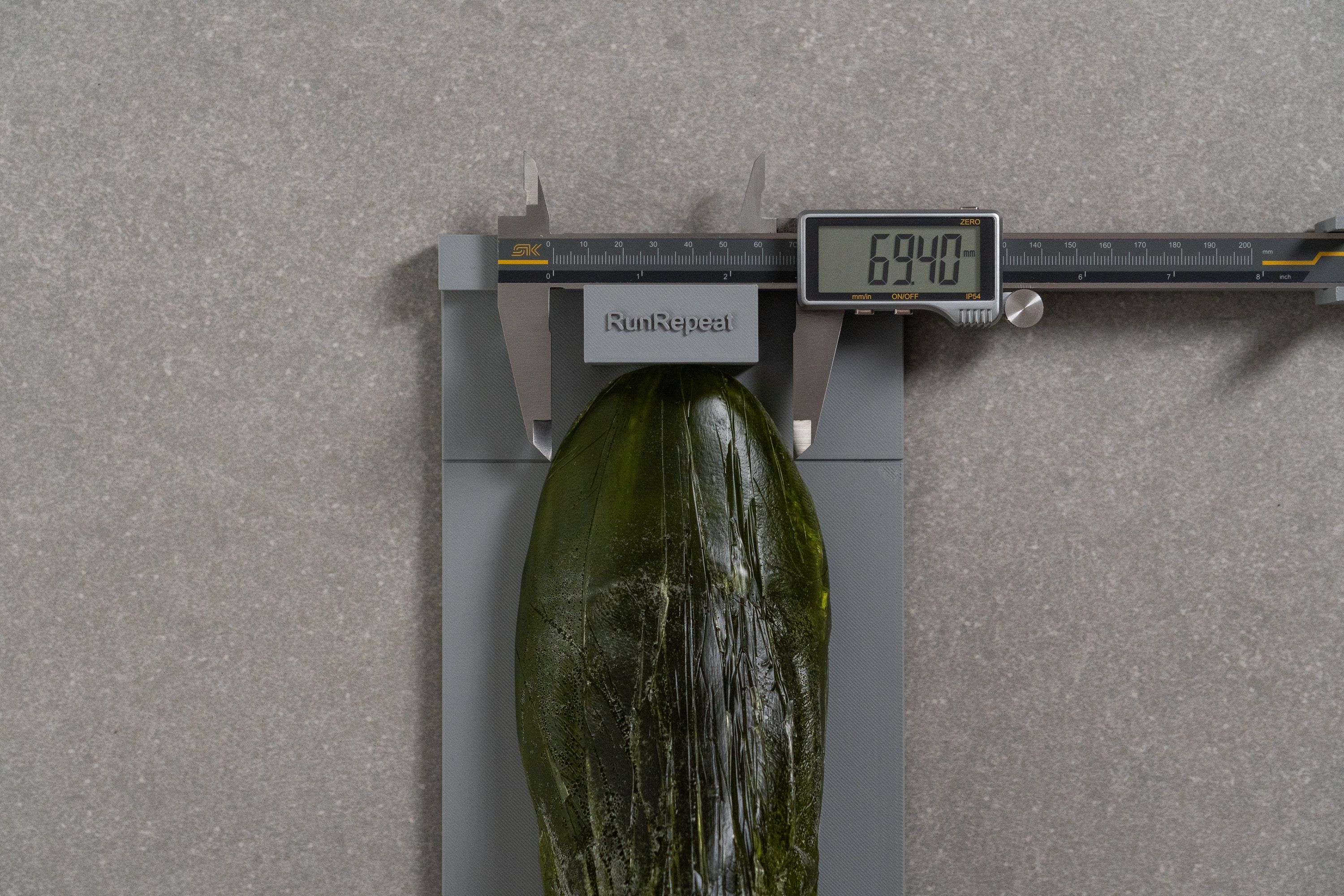
| G.T. Cut 3 Turbo | 69.4 mm |
| Average | 69.3 mm |
Toebox height
The shoe's vertical space isn't the roomiest, but it offers a standard amount of wiggle room with a toebox height of 24.0 mm
It's not too low to feel constricting but close-fitting enough to minimize unwanted foot shifting inside the shoe.
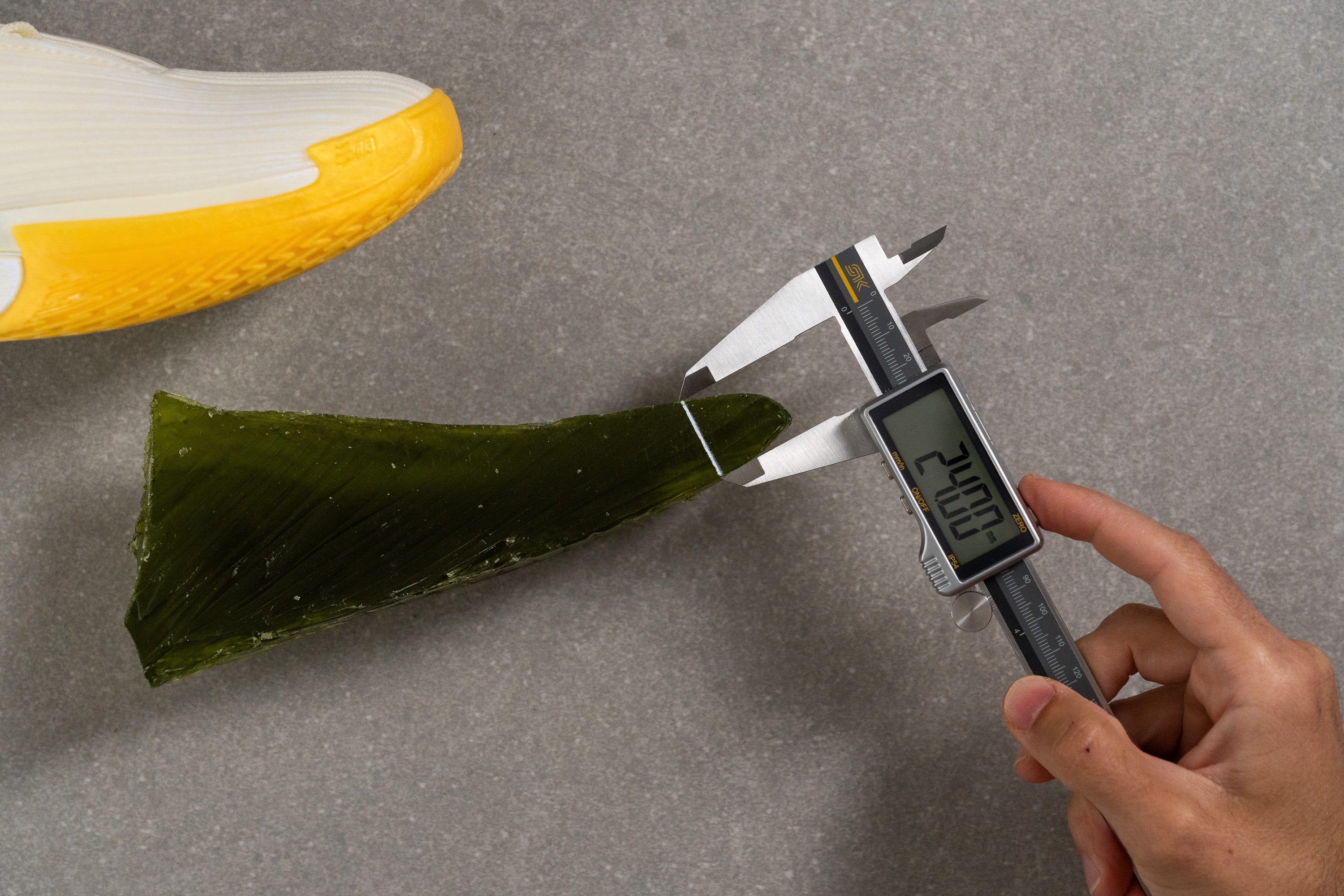
| G.T. Cut 3 Turbo | 24.0 mm |
| Average | 23.5 mm |
Traction / Grip
Forefoot traction
The stop-and-go traction of this Nike shoe is some of the best we've experienced on hardwood!
Showing a high friction coefficient of 0.81 in our lab test, the G.T. Cut 3 Turbo proved to be even grippier than the standard Cut 3 (0.73).
It complements the shoe's explosive nature, making us feel confident during sharp cuts and direction changes or when attacking the paint.
| G.T. Cut 3 Turbo | 0.81 |
| Average | 0.75 |
Outsole design
The outsole design and traction pattern appear to be identical on both the G.T. Cut 3 and the G.T. Cut 3 Turbo.
Its zig-zaggy treads bite polished hardwood like hungry, but are way too thin to last on the blacktop. Thus, we don't recommend using this Nike shoe on outdoor courts.
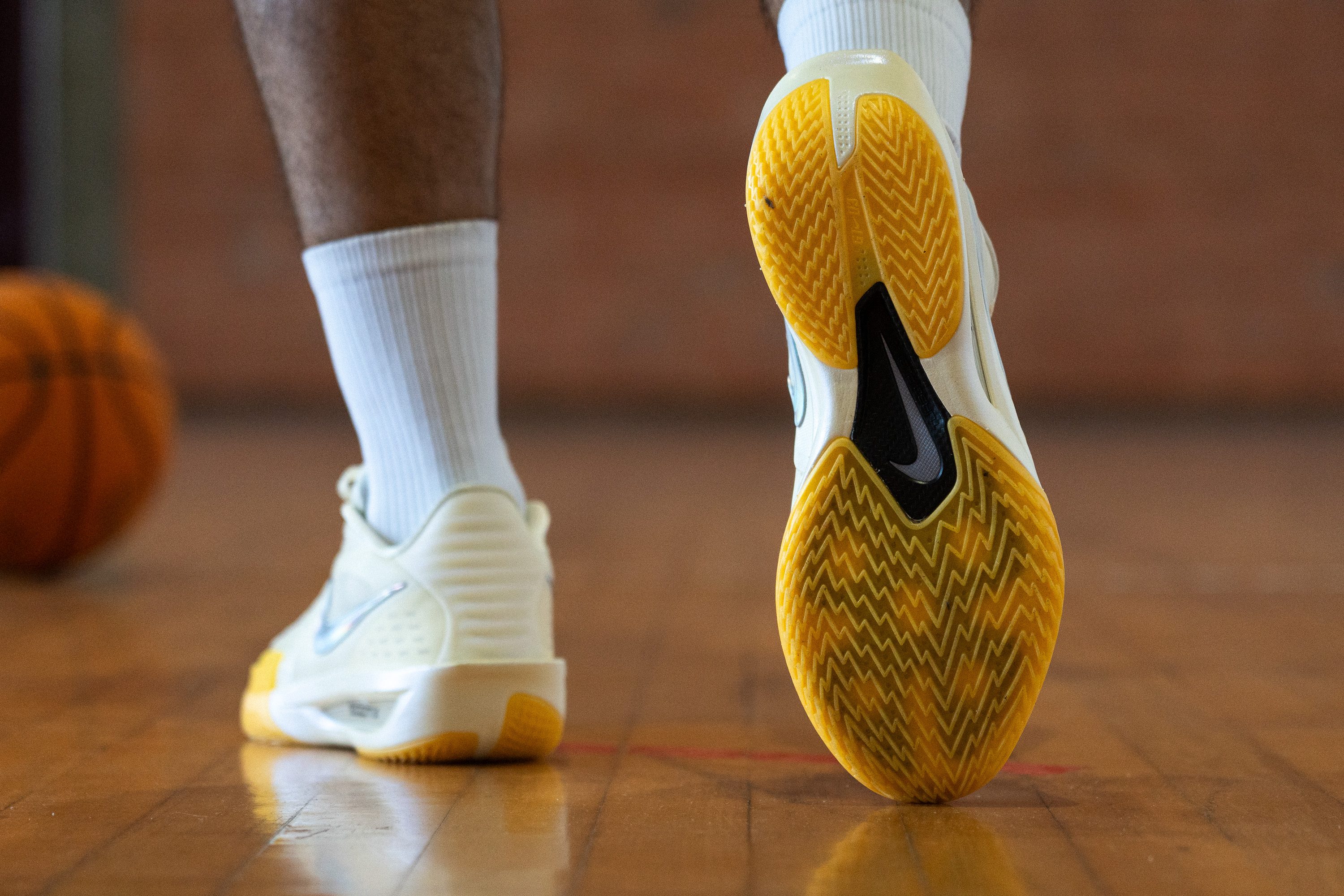
Flexibility / Stiffness
We expected that the presence of a carbon fiber-ish plate would make the Turbo even stiffer, but the shoe turned out to have the exact same stiffness as the standard G.T. Cut 3.
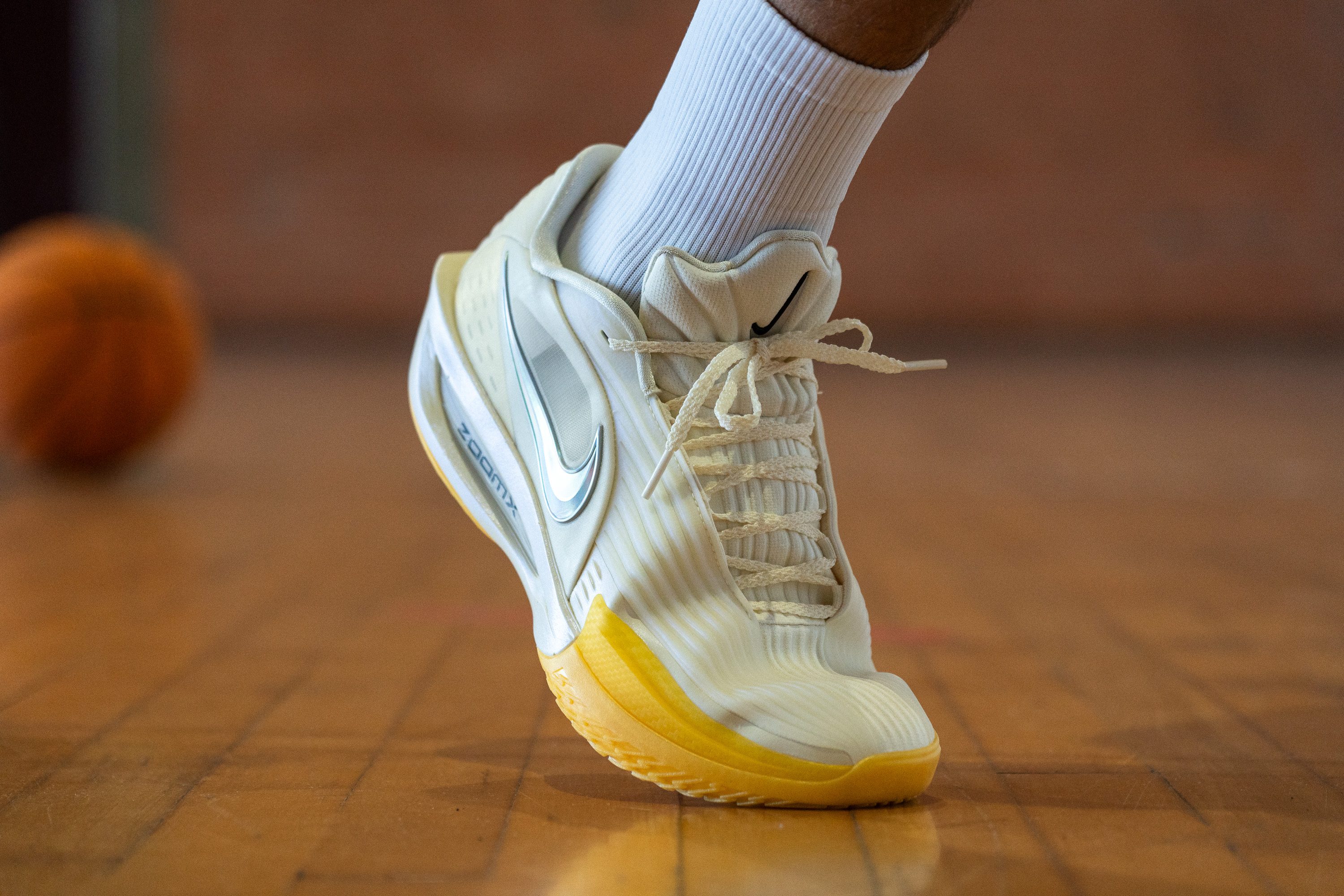
Measuring the force each shoe requires to bend by 30 degrees, we got an above-average reading of 25.7N in both. It may come across as too unyielding for some players, but that trampoline-like stiffness is what helps the G.T. Cut 3 Turbo be so efficient in its power transfer and agility.
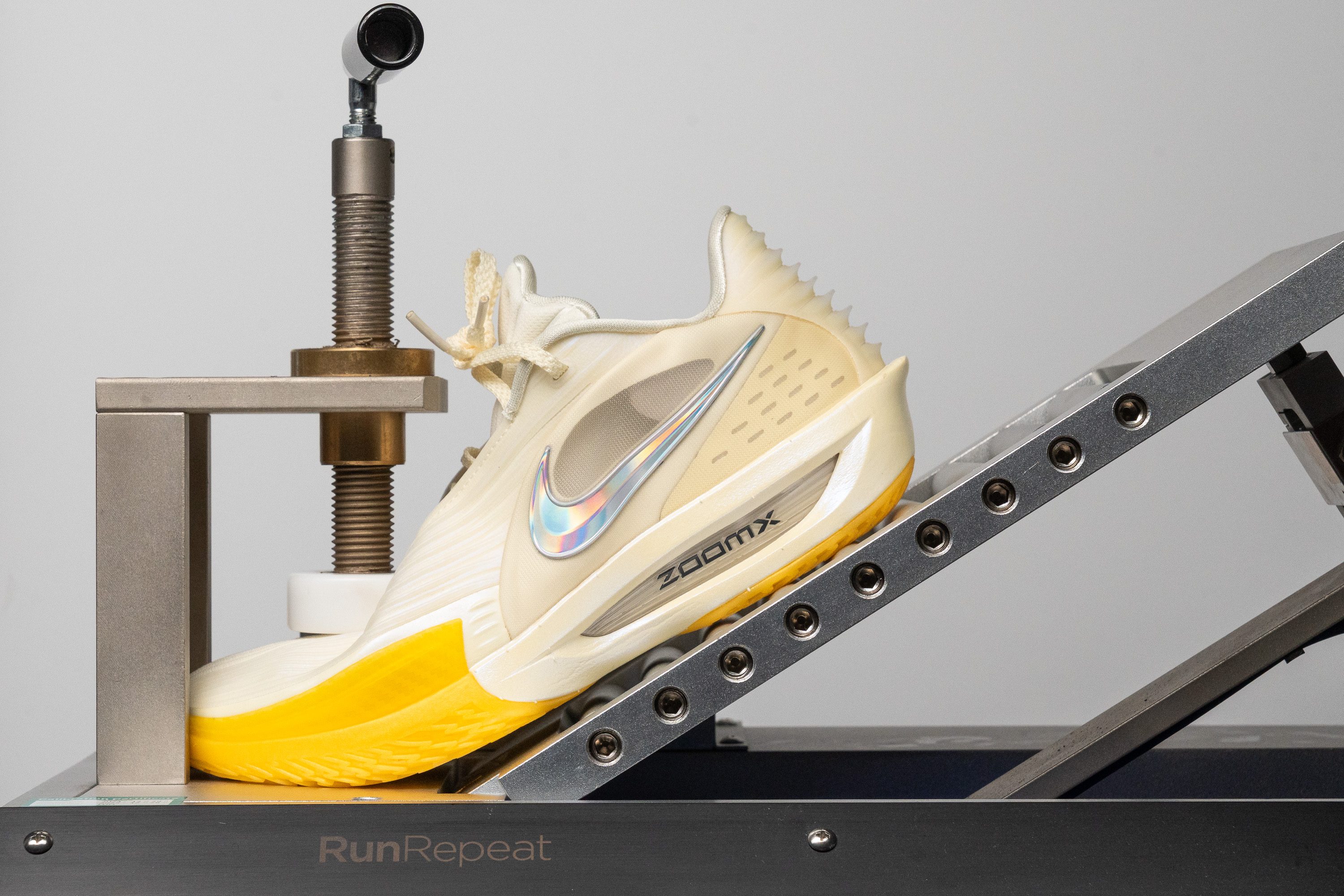
| G.T. Cut 3 Turbo | 25.7N |
| Average | 20.5N |
Weight
But on the downside, not all changes to the Turbo turned out to be for the best. Its new plastic components and tougher upper materials added almost an ounce of weight, resulting in a total weight of 12.6 oz (357g) per shoe in a men's US size 9.
While this is still lighter than the average basketball shoe, it is a step away from the original shoe's extra-light nature.
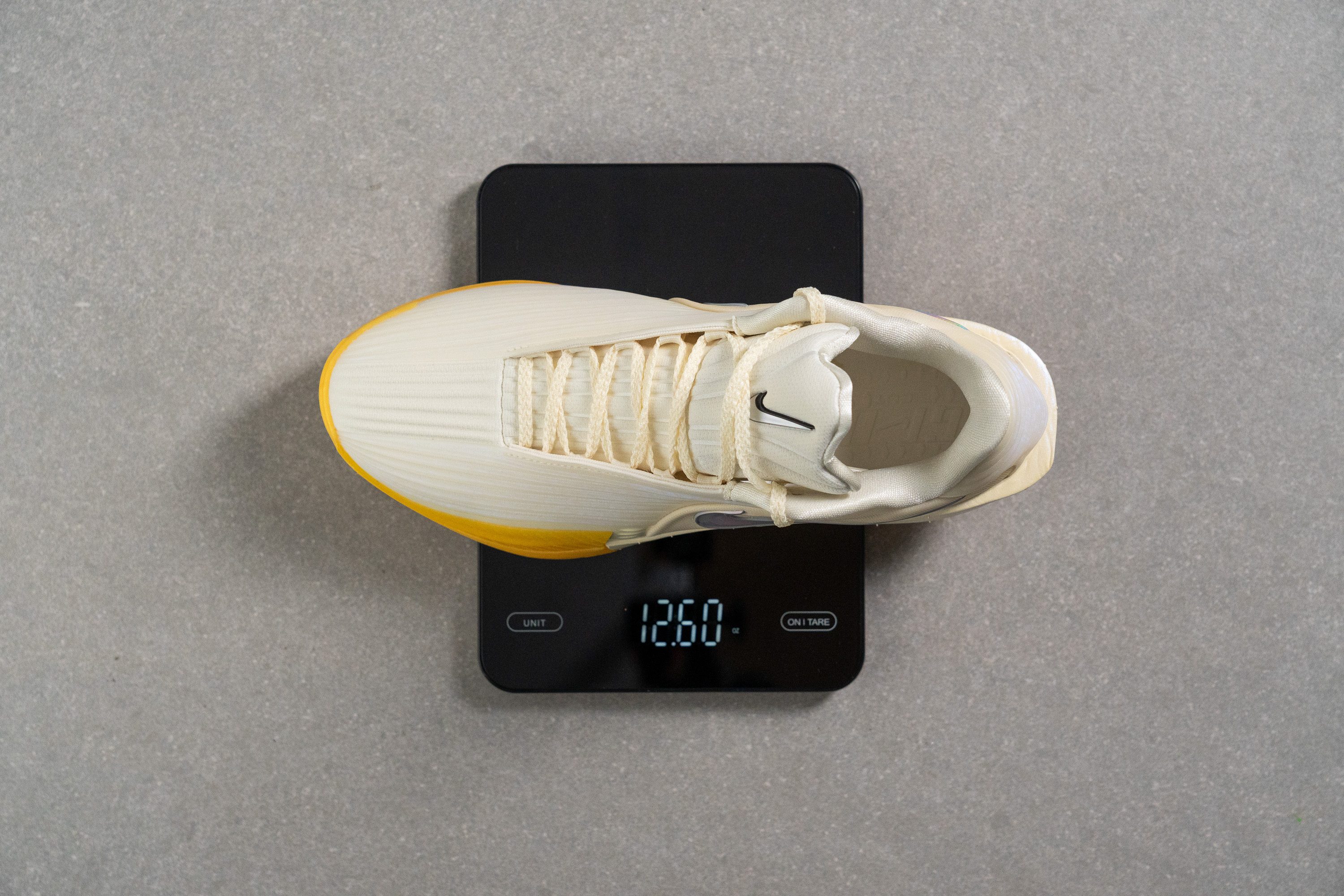
| G.T. Cut 3 Turbo | 12.6 oz (357g) |
| Average | 13.8 oz (391g) |
Breathability
Even though the shoe's upper design has been completely revisited, the brand didn't seem to give much thought to its breathability aspect.
Our smoke-pumping machine test showed zero improvement in the Turbo's ventilation capacity. Not even a tiny billow managed to pass through its tough upper.
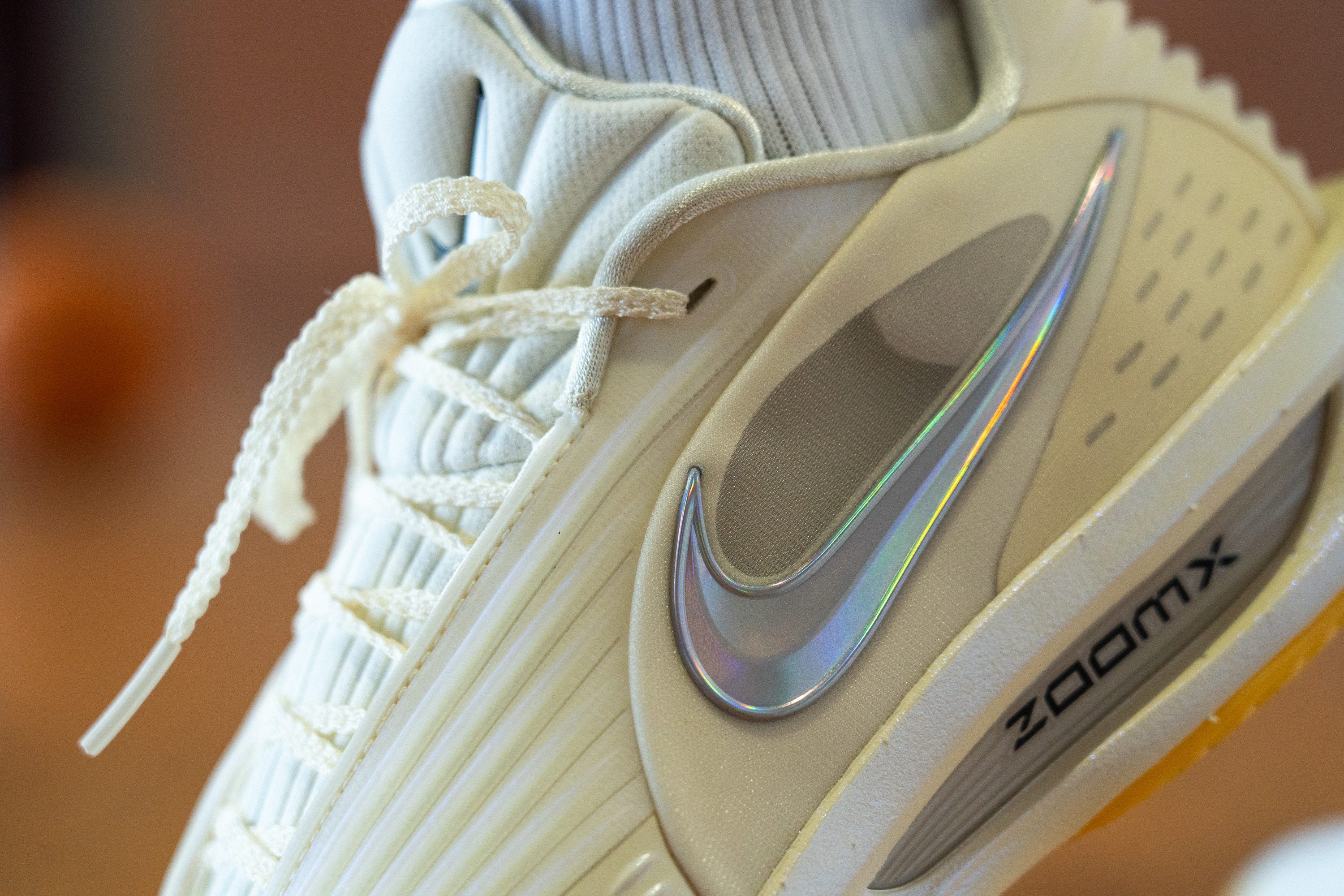
We were pleased to see ventilation panels on both sides of the shoe's upper...
...but they had a very mild effect on the G.T. Cut 3 Turbo's general airflow.
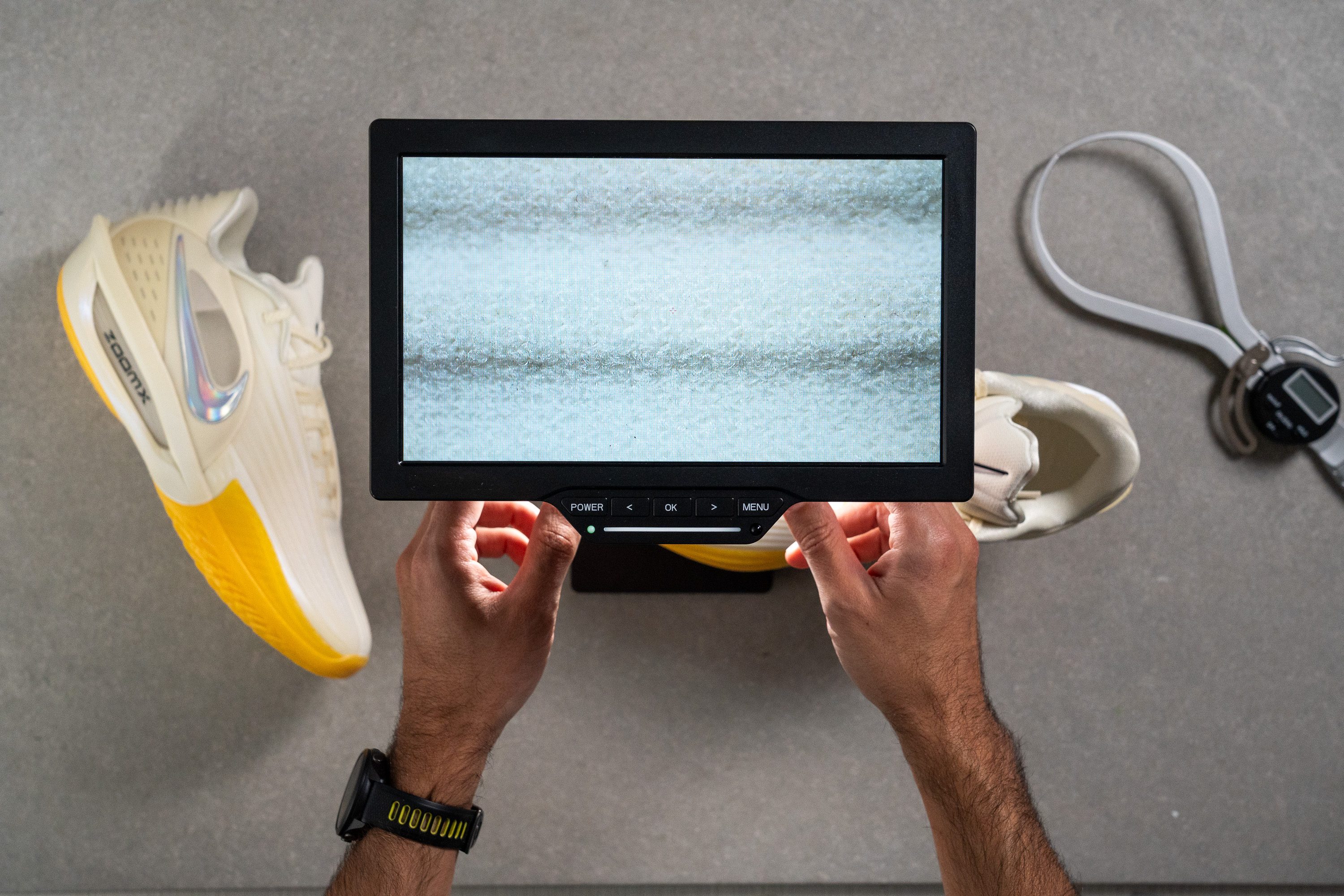
And given that most of the shoe's upper is covered in a very sturdy and thick material, there is not much hope for breathability in the first place.
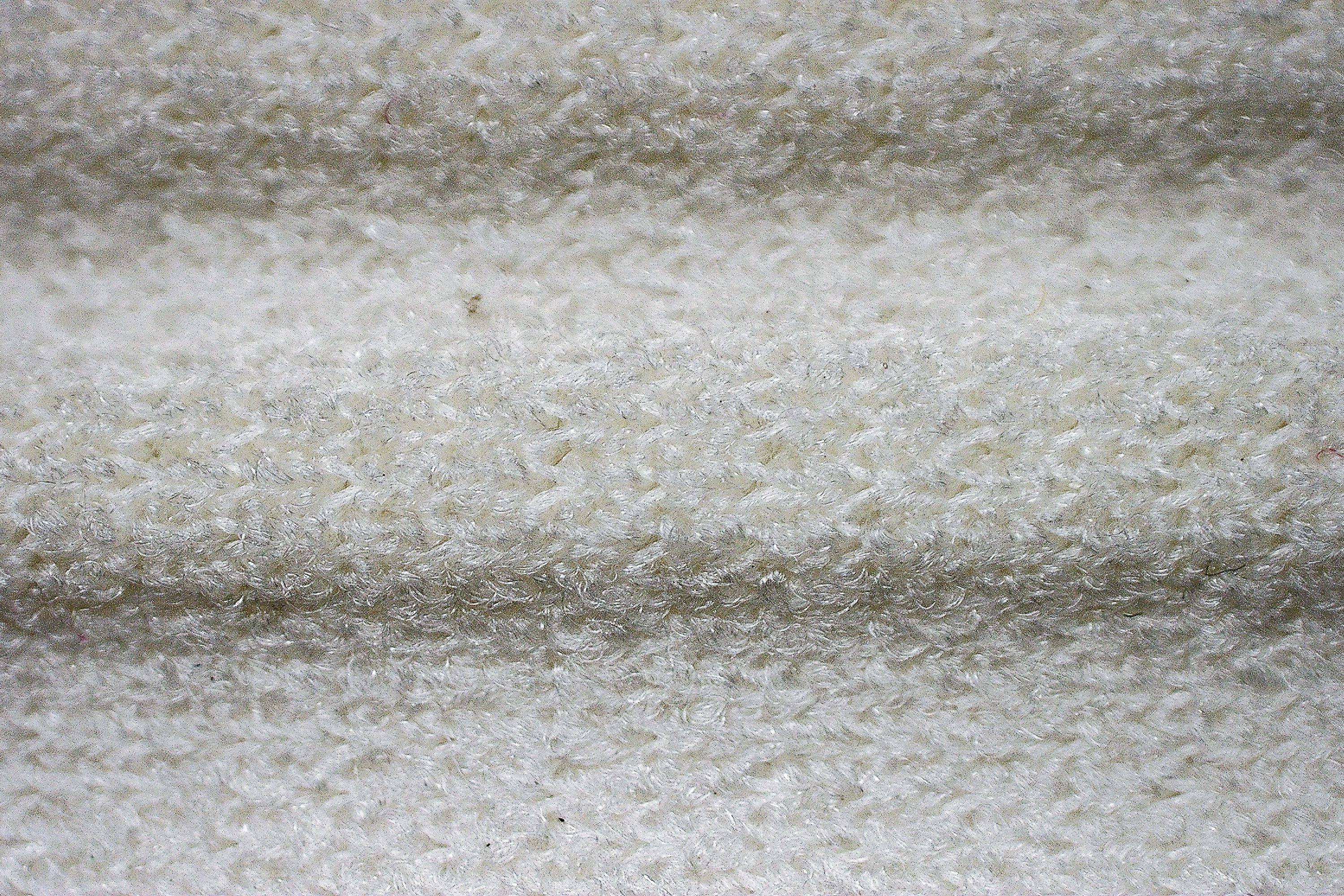
Earning our lowest possible breathability score (1 out of 5), this hoop shoe from Nike can get pretty toasty during an intense practice or game!
| G.T. Cut 3 Turbo | 1 |
| Average | 2.5 |
Stability
Lateral stability test
We were delighted to find that the G.T. Cut 3 Turbo improved one key area where the standard Cut 3 fell short, namely its lateral support.
A stiff plastic plate at the bottom of the midsole, as well as plastic wings on both sides of the shoe's forefoot, creates a much more stable base to rely on when the game picks up the pace. Meanwhile, the sturdier upper ensures a more secure foothold compared to the regular Cut 3.
All of these tweaks made the Turbo so much more reliable when changing direction abruptly, applying perimeter pressure, or landing after jump shots and blocks.
Torsional rigidity
As our manual test confirmed, this Nike shoe's torsional rigidity remains as strong as it gets. On a 1-5 stiffness scale, this is a clear 5 out of 5.
There is no buckling or instability despite the shoe's extremely high rebound. It also felt nice and steady for taking small adjustment steps and carving out space in traffic.
| G.T. Cut 3 Turbo | 5 |
| Average | 4.5 |
Heel counter stiffness
We also found that the shoe's heel counter bulked up quite a bit, featuring jagged rubber sculpting at the back.
In our manual test, we noticed that it helped to increase the shoe's heel counter stiffness, raising the score to 4 out of 5. It works together with the G.T. Cut 3 Turbo's beefed-up upper to provide a highly secure lockdown.
Heel slippage or shifting inside the shoe is simply nonexistent here.
| G.T. Cut 3 Turbo | 4 |
| Average | 3.8 |
Midsole width - forefoot
Intended as a more agile shoe from the outset, the G.T. Cut 3 Turbo is built on a relatively slim platform.
However, it's not devoid of a reliable outrigger in the forefoot, showing a decent width of 112.9 mm in the ball of the foot area. This is a sufficient contact area for planted steps.
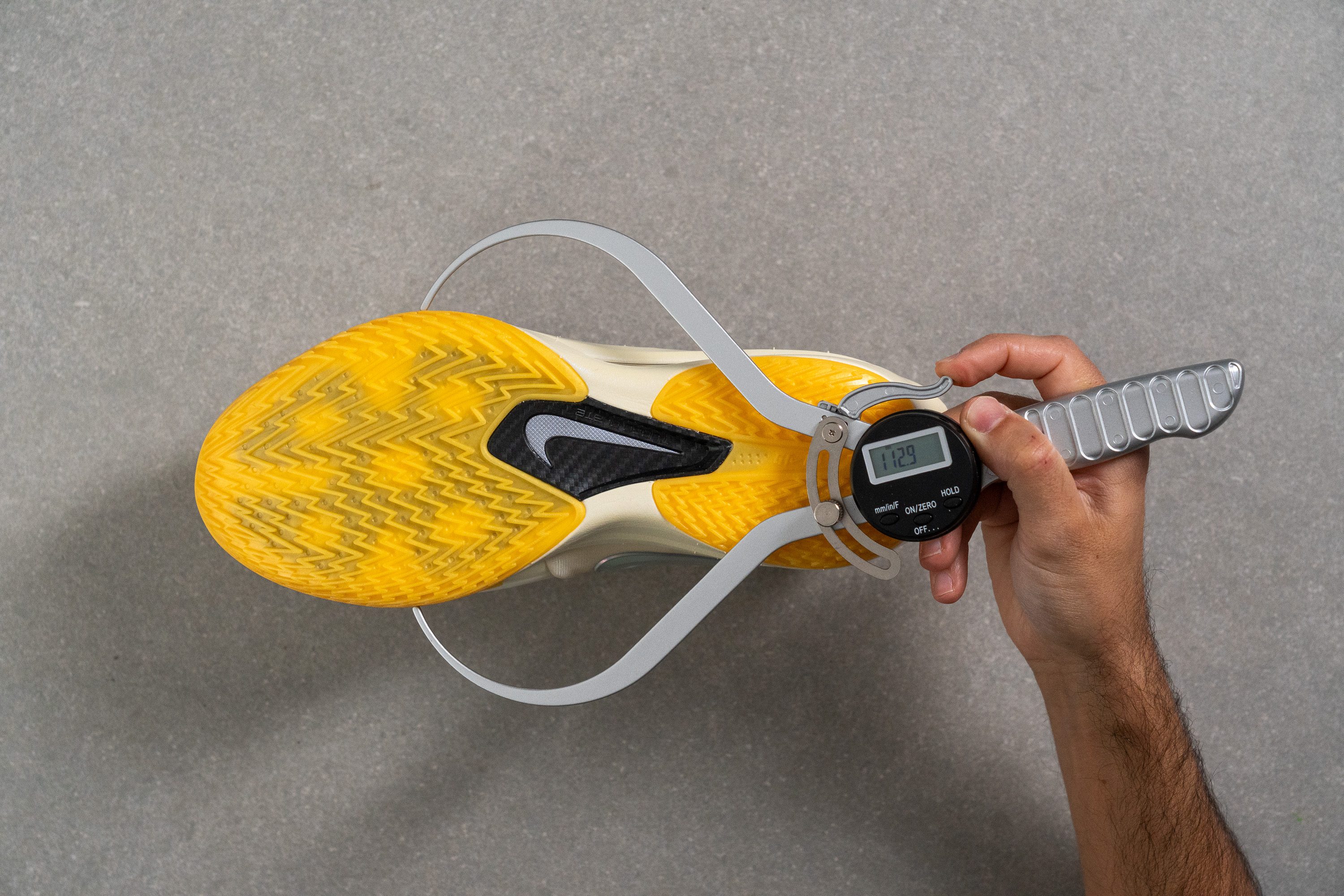
| G.T. Cut 3 Turbo | 112.9 mm |
| Average | 114.8 mm |
Midsole width - heel
The heel, on the other hand, turned out to be way narrower than average at only 82.1 mm. It doesn't grant a ton of stability, which can be a dealbreaker for players with past injuries or those who tend to roll their ankles often, who prefer a broader surface area for uneven landings from jumps or overpronation.
But if you're here in search of maneuverability for faster pivots and transitions, the G.T. Cut 3 Turbo is right up your alley.
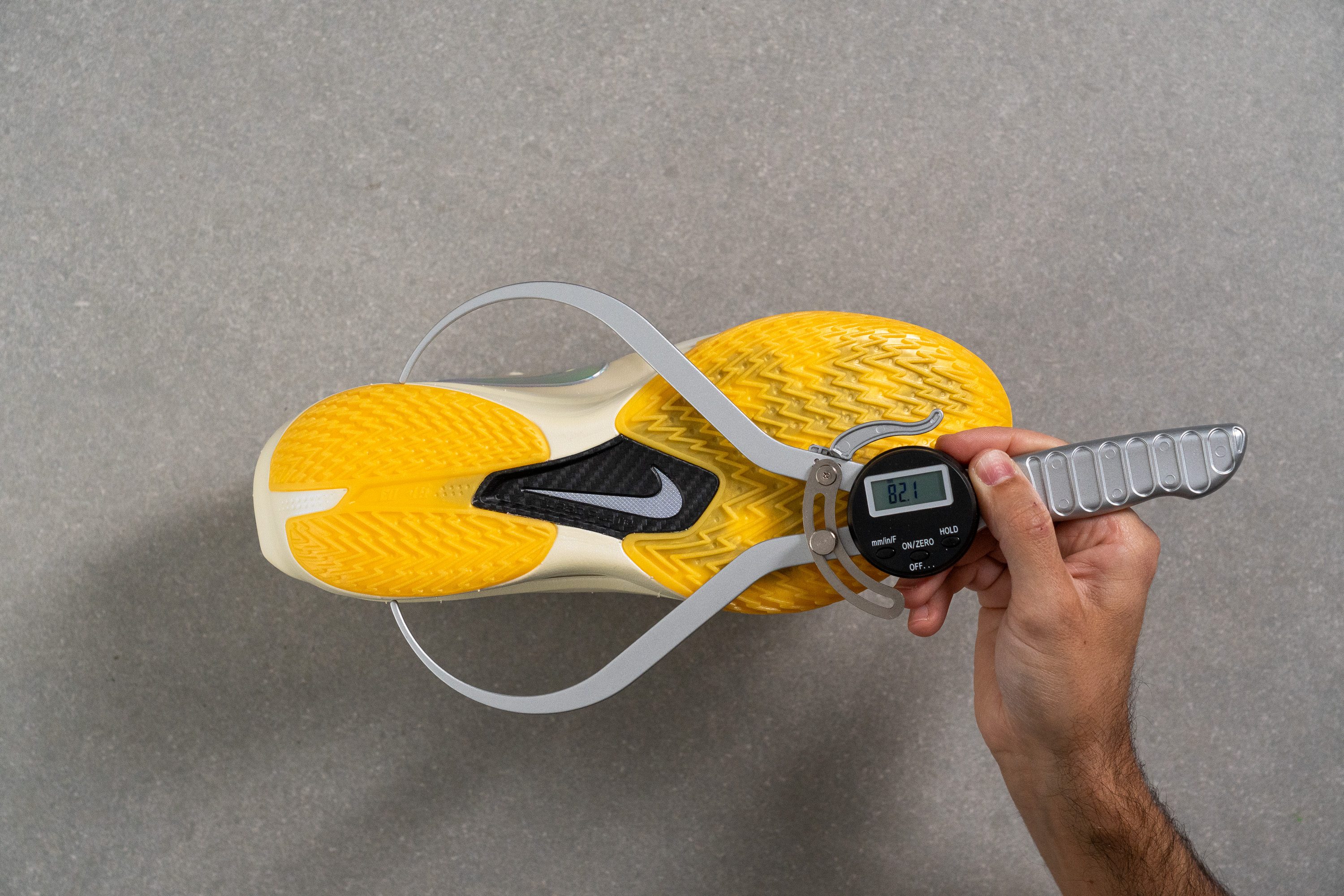
| G.T. Cut 3 Turbo | 82.1 mm |
| Average | 89.7 mm |
Durability
Toebox durability
Seeing how much tougher the Turbo's upper got, we expected nothing less than stellar abrasion resistance from it.
But to our disappointment, the sandpaper scuffed up the material much quicker and easier than we anticipated, lowering the shoe's toebox durability score to 3 out of 5.
| G.T. Cut 3 Turbo | 3 |
| Average | 3.7 |
Heel padding durability
But on a positive note, the shoe's inner lining feels like a true upgrade, showing excellent resistance to wear and tear.
Having survived the Dremel encounter with minimal damage, it earned the G.T. Cut 3 Turbo a high score for heel padding durability - 4/5.
| G.T. Cut 3 Turbo | 4 |
| Average | 3.7 |
Outsole durability
The outsole durability test, however, left us flabbergasted as we watched the Dremel tip dig straight into the rubber as if it were butter!
The dent turned out to be disappointingly deep at 1.6 mm, proving that the Nike G.T. Cut 3 Turbo would not last on the blacktop at all! Frankly, the test results even raised some reservations about the shoe's long-term outsole durability on hardwood..
| G.T. Cut 3 Turbo | 1.6 mm |
| Average | 1.0 mm |
Outsole thickness
Another point of concern is the shoe's moderate rubber layer, which showed a below-average thickness of 3.3 mm.
While it's not alarmingly thin, its lack of durability implies that you can burn all the way through it in only two Dremel sessions.
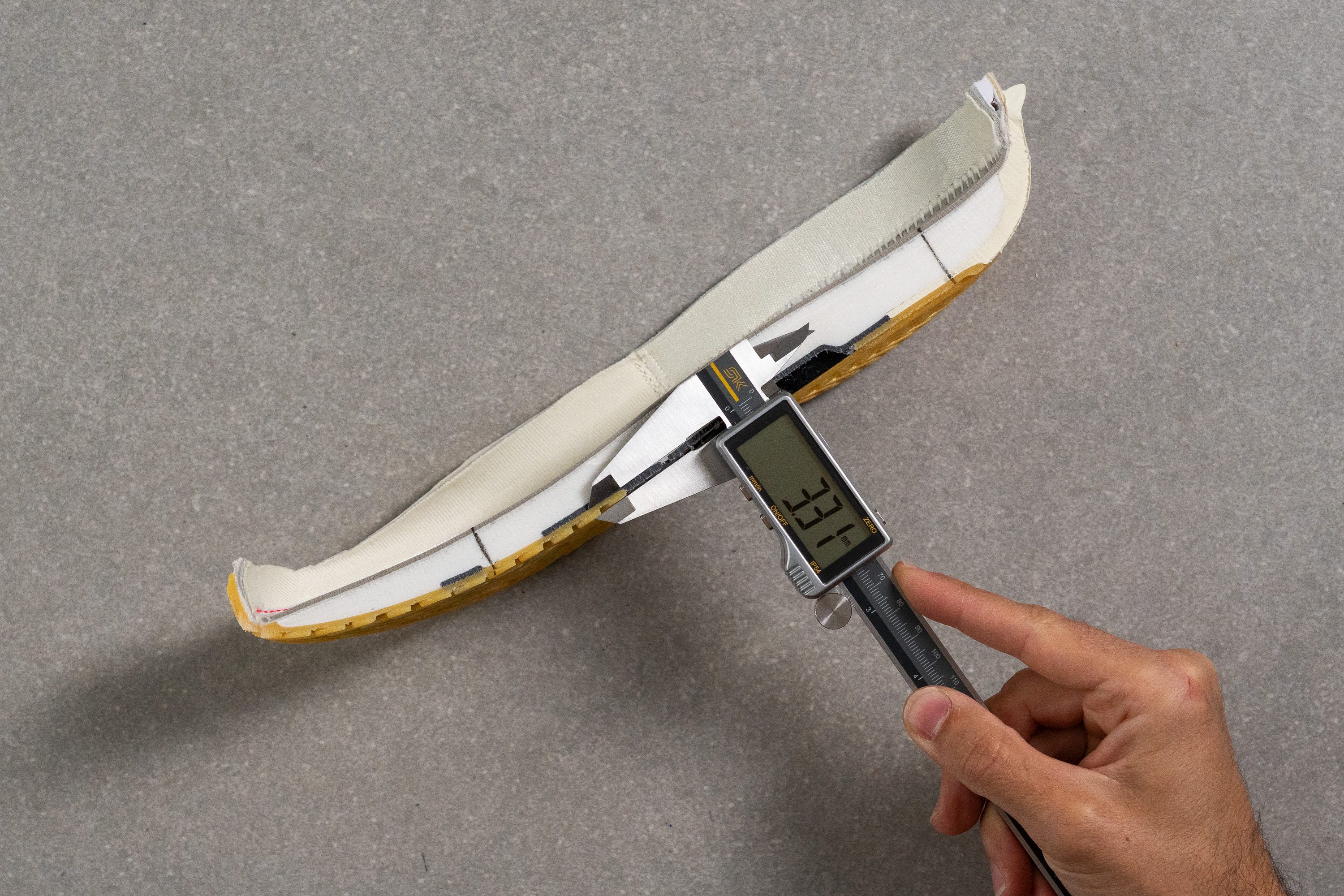
| G.T. Cut 3 Turbo | 3.3 mm |
| Average | 4.0 mm |
Misc
Insole thickness
Our caliper showed that the Nike G.T. Cut 3 Turbo's insole has a pretty standard thickness of 4.3 mm in the heel area.
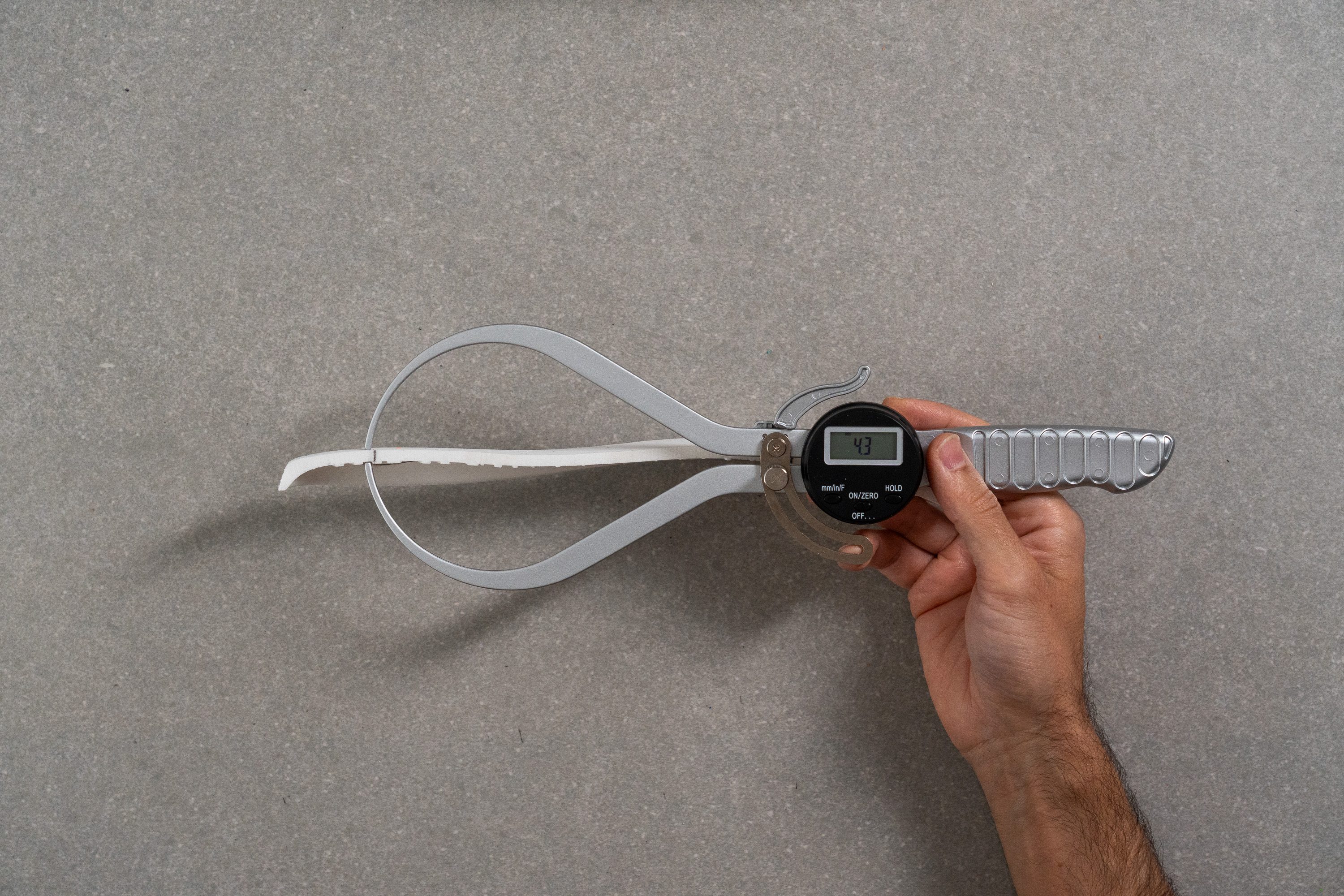
| G.T. Cut 3 Turbo | 4.3 mm |
| Average | 4.9 mm |
Removable insole
While the shoe's insole is removable, you most likely wouldn't want to swap it for any other insert. Made of the same advanced ZoomX foam as the shoe's midsole, this layer plays its part in enhancing the energy return.
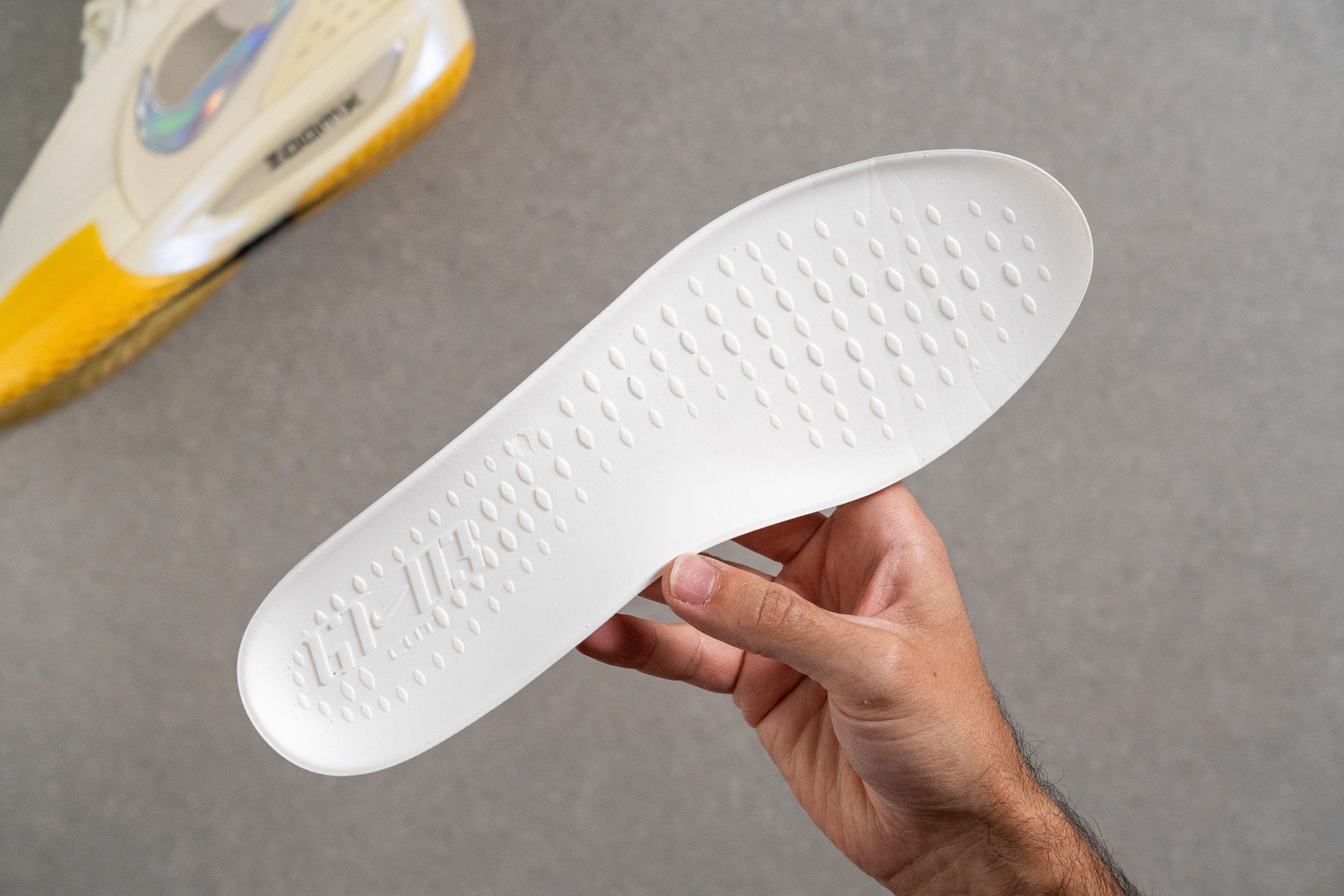
| G.T. Cut 3 Turbo | Yes |
Tongue padding
The G.T. Cut 3 Turbo is fairly well-padded for an agility-oriented basketball shoe. Measuring its tongue thickness, we got a standard reading of 9.5 mm.
It doesn't feel like a drag on foot yet adds a welcome touch of support.
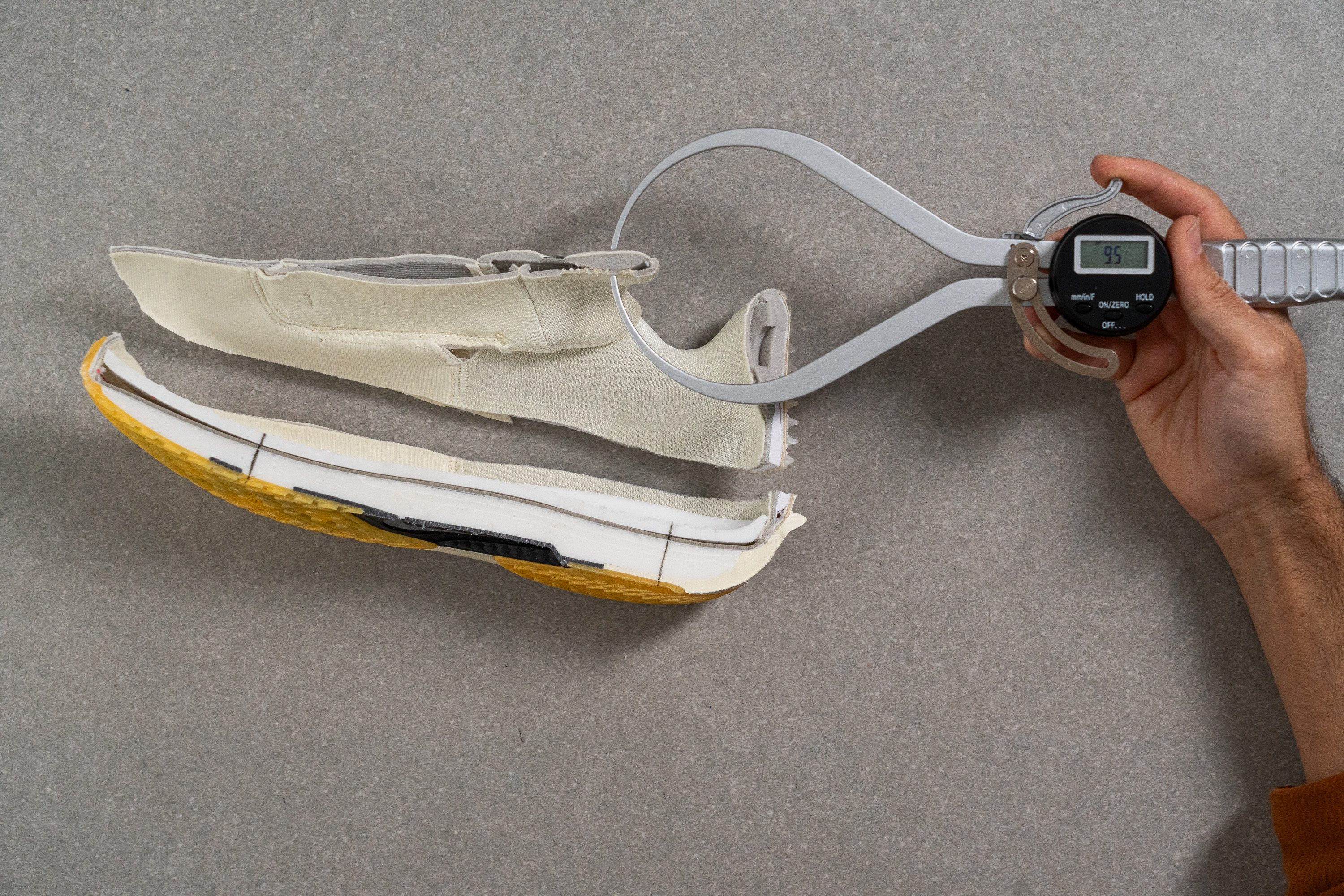
| G.T. Cut 3 Turbo | 9.5 mm |
| Average | 9.3 mm |
Tongue: gusset type
The tongue is only partially gusseted at the bottom, but we found it to be sufficiently secure.
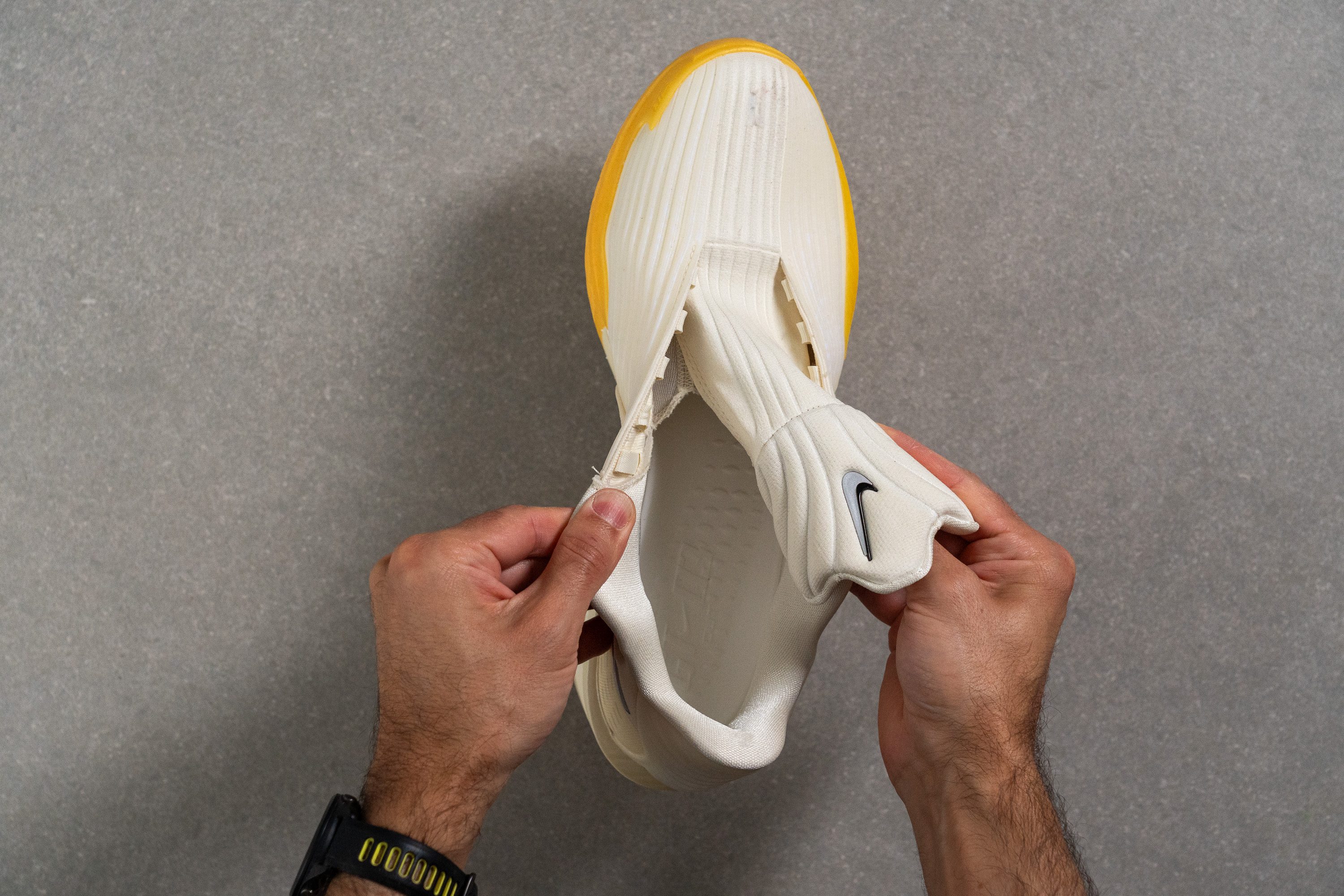
| G.T. Cut 3 Turbo | Both sides (semi) |
Heel tab
No finger loops or pull tabs are attached to the shoe's collar.
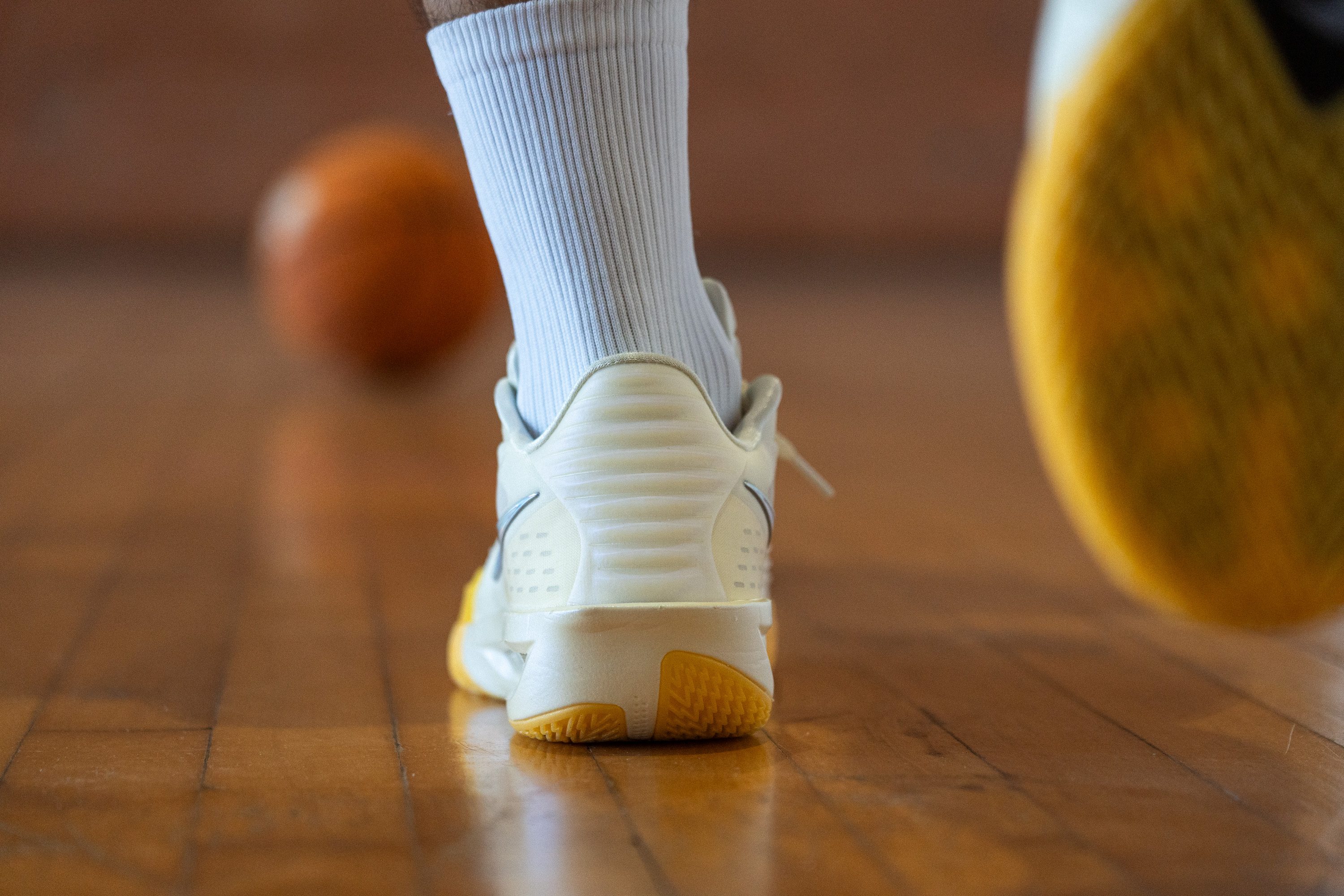
| G.T. Cut 3 Turbo | None |
Price
Priced just as high as Nike's flagship LeBron 23 signature shoe, the G.T. Cut 3 Turbo is currently one of the brand's most expensive offerings. It is even $5 more than the Air Jordan 40!
While we do agree that the Turbo offers phenomenal energy return with its ZoomX foam and (partially carbon fiber) plate, it is not an ideal shoe per se. And its equally impressive counterparts from the G.T. series carry a more humble price tag.
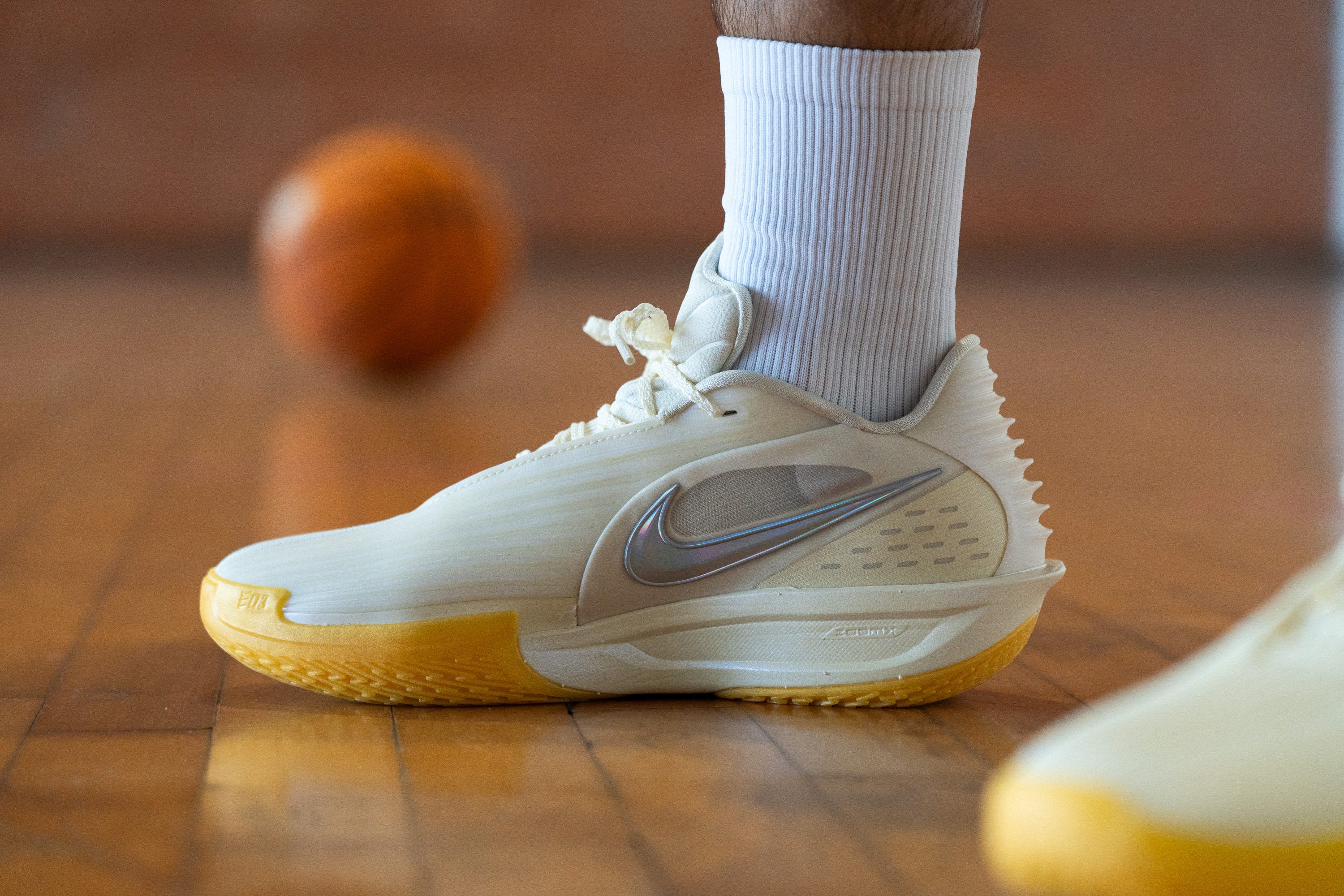
| G.T. Cut 3 Turbo | $210 |
| Average | $136 |

